
- Services Paper editing services Paper proofreading Business papers Philosophy papers Write my paper Term papers for sale Term paper help Academic term papers Buy research papers College writing services Paper writing help Student papers Original term papers Research paper help Nursing papers for sale Psychology papers Economics papers Medical papers Blog


206 Middle School Research Topics: Original Ideas List
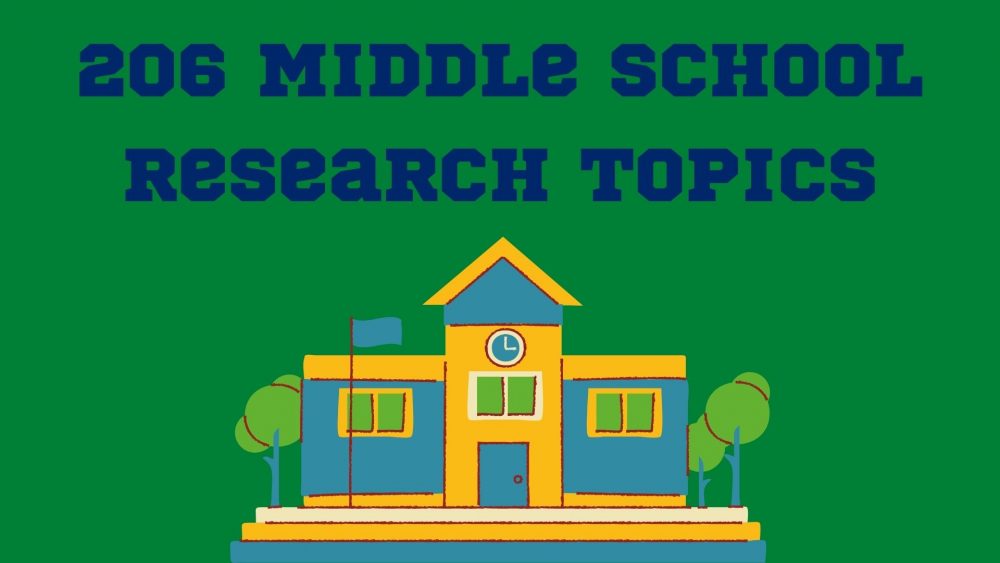
As middle schoolers prepare to go to high school, they are introduced slowly to essay and research writing. They are sometimes given homework that involves picking suitable topics and writing on them. However, it should be noted that i t is not easy to write a research paper for a high grade. Middle schoolers in their preteen age are taught how to be creative, air out their opinions and conduct little research. It helps make them critical thinkers and prepares them for more writing tasks as they advance in their education. This article will help middle schoolers understand what is expected of them when asked to write an essay or research on a topic. It will also expose them to different areas where they can write and many research topics for middle school they can pick from.
What Should Be In A Middle School Research Paper?
Middle school research papers are often not required to be extended. They are in a unique position where they move from writing simple pieces to more detailed essays and research papers. This is the foundation where they learn to write excellent papers as they transcend to high school and eventually college. Writing an essay in middle school is not very different from writing in other stages. Some steps to get you started are
- Understanding the Assignment :Before you begin, you should understand your teacher’s expectations when turning in your finished work.There will be rules and procedures to follow. Know the format the essay is supposed to be written in, and keep the due dates in mind. If you do not understand any aspect of the assignment, please ask for clarification, as this will help you deliver a clear and concise essay at the end.
- Do Your Pre-Writing :Start with brainstorming on middle school research topics to determine what you would like your essay to be about. There are many options to pick from and several general subjects to break down into topics you want.
Pick up to three topics when you first brainstorm. From there, you can select the best one to write on. When you find a topic, start writing all you know about it. Create a rough paper where you jot down information from your research that will be useful in your essay. Feel free to write freely, as this will be your first draft, and you have the chance to edit it as you go.
- Edit Your Work : Editing is essential. It helps give your paper structure. From your rough work, take out parts that are not necessary and add details you think you missed. This is where you should be detailed and try to make your work as neat and correct as possible. You are almost at the end of writing the paper.When you are sure your paper is good, it is time to proofread. Check for spelling and punctuation errors. One expert way to do this is to read the report from the bottom up, and this can help you spot any spelling errors.
- Citations and References : Your teacher would have given you a format to write references for your work. Ensure that you are following the prescribed format.References will highlight the sources of the information gathered to make your essay.
What Can Middle Schoolers Write About?
There are many general subjects that middle schoolers can write about in their assignments. Streaming from what they have been taught in the classroom or their experiences outside class. Some issues that can create good middle school research paper topics include:
Science : This broad aspect covers earth science, geology, physical science, life science, and genetics. Science research paper topics for middle school will encourage the students to be interested in growth and learning how things work. Social Studies : This will involve learning about their history, other people’s cultures, human interaction, family, etc. This will create fun research topics for 6th graders, learning about life and how relationships work. Literature : This is the best time to learn about books and works of art. The literature will provide many topics to research for middle school students.
There are many more aspects that middle school students can research and write papers on. Discover more than 200 interesting research topics for middle school students below. However don’t worry if the assignment seems too difficult for you. You are only at the beginning of the path and our cheap research writing service will be happy to get you through with your paper.
Good Research Topics For Middle School
Students who have no experience writing papers and are looking for good research topics to work on are in luck. The topics below are suitable for all middle schoolers and can create detailed essays.
- Should students be compelled to wear a specific uniform?
- Textbooks or tablets: which is better to read from?
- Obesity in American youth: Causes and solutions.
- Should boys and girls be allowed to play on the same athletics team?
- Should young people be allowed to play violent video games?
- Impact of continuously playing violent video games.
- When can we say someone is spending too much time in front of the screen?
- Listening to music during class: Does it disturb concentration?
- How to recognize harmful content on the internet?
- Should all businesses be compelled to recycle?
- What is the appropriate punishment for students who engage in cyberbullying?
- Should school hours be adjusted to later in the morning?
- Should our scientists be allowed to test drugs on animals?
- Why do people’s behavior change in different settings?
- Is sex education important?
- Different types of poetry and how they came about.
- What to do if you are being bullied on the internet.
- How to have healthy self-esteem.
- Why does the human body need sleep?
- Insect repellents, are they helpful?
- Why did dinosaurs go extinct?
- What is skateboarding?
- The effects of tobacco on the body.
- Artificial tanning: Risks and benefits.
- What is spam email? Where does it come from, and how can we stop it?
- What is a desert mirage? How does it affect people?
- What are penguins? Where do they stay, and what do they eat?
- When and how was America created?
- Who are some well know and inspirational women?
- Who are some famous inventors?
- What famous inventions helped in shaping human existence?
- Steps you can take to protect yourself from scammers online.
- What is a cryptocurrency, and why is it so popular?
- What did the invention of the mobile phone do to change the world?
- How to handle stress from school.
- How can issues in the family affect a child?
- Is your school working hard enough to prevent bullying?
- Should we use mobile phones and tablets in class?
- Does technology make you smarter?
- What is an unhealthy life, and what are the effects?
- Is there any benefit of doing homework?
- What is video game addiction, and how to stop it?
- What is a museum, and what can be found in it?
- What can we do to reduce climate change?
- Is soda suitable for children?
- Does everyone have to go to college?
- Comparing homework and class assignments.
- What is physical education?
- How the internet has changed our life
- What is peer pressure?
- What effect has global warming had on the environment?
- What is racism?
- What is a healthy diet?
- Should students be able to pick what they learn?
- Do movies depict what happens in real life?
- Is arts a vital part of the school curriculum?
- What are the challenges students face?
- How do we conserve energy in our homes?
- What is pop culture?
- Should parents monitor their children’s social media?
Fun Research Topics for Middle School
Writing an essay shouldn’t always be stressful or tedious. These topics will make writing papers fun. The topics below can hold the researcher’s attention for a long time as they work on completing their project.
- How should celebrities who break the law be punished?
- What is bulletproof clothing made of?
- All there is to know about hip-hop.
- What do we know about ninjas?
- Do lie detector tests work?
- What are the ingredients contained in a hotdog?
- Sharks, how do they hunt, and what do they eat?
- How do search engines work?
- Some fascinating extinct animals, and what happened to them?
- How to manage time effectively.
- How does insufficient sleep affect the brain?
- How to let go of bad habits?
- How do parents help us grow?
- How to become a better writer.
- Are dogs and cats enemies?
- Why do parents punish children for bad behavior?
- What is the best punishment for naughty kids?
- Is magic real?
- How to save money effectively?
- What is self-development?
- How to motivate yourself to be a better student?
- When should you begin to earn money?
- What’s the secret of having a successful life?
- How not to become a game addict.
Middle School Research Project Ideas
Research shouldn’t always end as essay writing. Sometimes, you need hands-on projects to keep the middle schooler busy. The list below can serve as an ideal hub for research ideas for middle school students and work as interesting essay topics.
- Investigating what life is like inside a beehive.
- Steps in creating a movie.
- How do our brains store memories and retrieve them when we need them?
- What is a landform?
- What are some important holidays around the world, and who celebrates them?
- What are some significant symbols used in world holidays?
- Creating an ecosystem: what’s the process involved?
- Research on some exotic underwater creatures.
- What is a meteor?
- How to build a crossword puzzle.
- What is advertising: create a short advertisement campaign.
- Write the story of your life.
- Create a calendar highlighting critical events in your life.
- Create your family tree.
Science Research Topics for Middle School
Science is an exciting part of our lives. Because of science, the quality of our lives has increased, and there are many more inventions to come. These topics can engage the curious mind of the youngster and introduce them to science-related subjects to work on.
- Earthquakes: Its causes and effects.
- Computer viruses. What are they, and how do they spread?
- Evolution of human beings.
- Are human beings still evolving?
- What is alchemy?
- What is a black hole? How is it formed?
- What is a submarine? Who uses them, and how do they work?
- What is the cause of tornadoes?
- What is a sinkhole, and how do they form?
- Research on one of the planets in the solar system.
- Understanding glaciers and icebergs.
- What are volcanoes, and how do they form?
- The different types of volcanoes and what causes them.
- Who are the most famous scientists, and what are they famous for?
- What are the components of airplanes that make them fly?
- What are fossils, and what do they teach us?
- How do genetics and DNA affect how we look?
- Why does the moon change color and shape sometimes?
- What is a Lunar eclipse?
- What is pollution?
- The different types of pollution and what can be done to curb them?
- Can fruits play a part in medicine?
- What is flooding?
- What is an ecosystem?
- What measures do butterflies take to defend themselves?
- Different types of butterflies.
- What is a skeleton, and why is it an essential part of the body?
- How many bones are in a skeleton? Which are the most important?
- Who is a marine biologist?
- What is the connection between a marine biologist and the weather?
- What are the risks marine biologists face when they dive?
- Different types of fossils?
- Are whales still hunted?
- What is scientific research, and who conducts it?
- What is the job of the nervous system?
- Understanding the concept of hibernation?
- What are the necessities plants need to grow?
- Who are the people who study dinosaurs?
- Mammals and reptiles: Similarities and differences.
- Why don’t human beings float?
- What is a prism, and what does it do?
- What gives humans the ability to lift heavy things?
- What factors can cause earthquakes?
- How is wind measured?
- What differentiates a planet from a star?
- What is a galaxy? What galaxy is the earth?
- Who is an astronaut, and what is their job?
- What is a waterfall?
- Do plants drink water?
- Why do oil and water not mix?
- What is microbiology?
- How can we preserve our natural resources?
- Discuss the advantages and disadvantages of exploring space.
- What are bacteria, and how useful is it to humans?
- The similarities between temperature and heat.
Other Topics to Research for Middle School
We cannot run out of topics for middle schoolers, as several aspects are available to look at. Here are some other topics that can jump-start your essay writing process.
- Is it advisable for students to be with their cell phones all day?
- Should the minimum age for getting a driving license be raised?
- The differences between homeschooling and standard schooling: which is better?
- Does social media have a positive or negative impact on teenagers?
- Going vegan, is it good for your health?
- Who is a Monk, and what is his lifestyle/routine?
- How did humans domesticate cats and dogs, and why?
- How is America helping endangered animals?
- How is climate change affecting us?
- What are the effects of video games on teenagers and children?
- Do Athletes make good models?
- Who is to blame for the number of homeless people in America?
- Should we have shorter school weeks?
- Should parents monitor websites visited by their children?
- What is cybercrime?
- What can we don’t protect our environment?
- Instant messaging, do they affect literacy?
- What are the most effective ways of achieving academic excellence?
- What is a good movie that influenced us in 2023?
- Are tests a good way of judging a student’s intelligence?
- How does music help us feel better?
- How to choose the best research project ideas for middle school students.
- Why is it important to learn multiple languages?
- Do learning techniques affect behavior?
- Bullying and its effects on mental health.
- All you need to know about distant learning
- Should prayer be part of school activities?
- Do we need math formulas in real scenarios?
- When should students start undergoing leadership training?
- How to write a good essay.
- How does night vision work?
- What is the solar system?
- What is Nasa, and what do they do?
- What is a natural disaster, and what can cause one to happen?
- What is the process of becoming a president of the United States?
- How many presidents has the United States had?
- What are some of the responsibilities and privileges of the president?
- Learning about Vice Presidents and First Ladies of the United States.
- Is social media dangerous for children?
- Does the location where you grow up affect who you become?
- What is a participation trophy? Is it necessary?
- Should there be a screen time limit for children?
- What are the responsibilities of a government to its citizens?
- What is a curfew, and why do kids have them?
- Is grounding an effective punishment?
- Should physical education be necessary for everyone?
- What are some advantages of knowing how to read?
- How can cell phones be used productively while in class?
- What are the qualities of a good leader?
- What are hobbies, and what do they do for us?
- Should less homework be given to students?
- What is summer school? Does it help students?
- What age is appropriate for children to be left alone at home?
If You Need Paper Writing Help
There are many ways to brainstorm ideas for your middle school homework. The research project ideas for middle school and the topics listed above will make it easier to begin. After picking a suitable topic, the next step is writing the entire paper. This will involve a lot of research and fact-finding to get accurate information for your paper. It doesn’t end at research, as you still have to write a great essay to score high marks. This could be a daunting task for many students. Don’t be afraid to get research paper help from our professional writers. After attending class, you may not have adequate time to write your essay yourself, if this is your situation, it’s okay to search for help on the internet. A quick google search for “write my paper” will result in several websites promising to write the best essay for you. However, you need to make your research before hiring an online writer for your assignment. If you need someone to write your assignment, we can be of help. We provide fast, reliable, custom paper writing services that can be completed online. Our services are available to every student, including university, middle school, high school, and college students. Our team of writers consists of professionals and teachers who are always available to ensure that you meet your deadlines. Contact us with a message “ do my research paper for me ” and enjoy the perfect result!

Leave a Reply Cancel reply
Your email address will not be published. Required fields are marked *
Save my name, email, and website in this browser for the next time I comment.
Terms & Conditions Loyalty Program Privacy Policy Money-Back Policy
Copyright © 2013-2024 MyPaperDone.com
140 Best Middle School Research Topics and Ideas
Table of Contents
Identifying an ideal topic and writing a well-structured research paper is a challenging task that requires a lot of skills. In specific, the majority of students often get confused about how to create a catchy thesis statement relevant to the chosen middle school research topic. Therefore, instead of selecting a complex topic, going with a simple and interesting middle school research topic with a wide scope of discussion will resolve this issue. In case, you are in a dilemma of what topic to choose for your middle school research paper, check this blog. Here, we have presented a list of excellent middle school research topics on different themes. Pick a topic from the list to save time.
Steps for Writing a Middle School Research Paper
Writing middle school research papers is no different from writing assignments in other stages of the academic career. Here are some steps to get started with the task:
Understanding the Assignment Requirement
Before you start writing, consider what the teacher expects to see in the final copy of your research paper. You will come across multiple rules and procedures. Know the format you are supposed to write and bear in mind the due dates.
Complete Your Pre-Writing
Start devising middle school research topics. Select up to 3 topics when you first ideate your subjects for writing your paper. From there, choose the best one to write on. Then, jot down the valid and useful information from your research. Then, let your ideas flow in the first draft but keep writing in line with the jotted-down details.
Edit and Proofread Your Work
Editing and proofreading are essential. Begin the revision process with editing. From your first draft, remove the unnecessary sections and insert details you think you missed. Also ensure that your work is neat, accurate, logically structured, and has a smooth flow.
When you are sure your paper has good-quality content, it is time to proofread. Look for spelling and punctuation errors. A quick and easy way to do this is to read the document from the bottom up. This will ease the process of spotting the finest spelling errors.
Citations and References
Finally, cite and reference your work. Follow the format given by your teacher to write references for your research paper. References will emphasize the sources of the data collected to develop your research paper.
Types of Research Topics

There are significant components that aid in the process of picking middle school research topics. Once you can determine the type of research paper, it will become easier for you to compose your solution. There is an array of categories but three of them are the most crucial ones. Read the below points to find out about them.
- Descriptive– These topics are based on vigilant and complete observation of an occurrence, occasion, theme, trait, etc. to distinguish it in feature and to potentially uncover essential, appealing, non-depicted aspects or patterns.
- Causal – These ideas investigate whether altering some variables leads to changes in other variables suggesting a causal relationship.
- Comparative– These topics inspect resemblance and dissimilarity between two or more entities
Features of a Good Research Paper Topic
Searching for an appropriate middle school research topic becomes easy when you know the characteristics of an excellent topic. The following are the features of an excellent middle school research topic:
- Precise and real – Research goals and predictable results must be obvious and focused
- Original – scrutinizing aspects, units, and associations that have never been researched before
- Highly important- Effective for community, civilization, and a professional field
- Highly relevant for probable readers, reviewers
- Trending – Rising disciplines, and subjects ignite more interest in their originality and yet the uncharted possibility
List of Middle School Research Topics
Have you been assigned to develop a middle school research paper? Are you looking for some excellent ideas to develop your paper? Then, take a look at the range of topics mentioned below.
10 Middle School Research Paper Topics on Politics
Find 10 ideas to develop your middle school research paper topics here.
- Should the drinking age be reduced?
- Should adults have the privilege to carry a hidden handgun?
- More gun control laws should be performed
- How can the global community prevent Iran from creating nuclear weapons?
- How can racial assassination be stopped?
- The current outlook for peace between Israel and the Palestinians
- How would the world be without wars?
- How to avoid personnel reduction?
- Should the death sentence be allowed?
- Is socialism achievable?
10 Middle School Research Topics on Psychology
Get 10 simple ideas to develop your middle school research ideas on psychology
- Is autism an illness or a progressive peculiarity?
- How to predict and form behavioral patterns?
- How to control child violence?
- How to handle a mental breakdown?
- The effect of classical music on the functioning of the brain
- How does insomnia impact our health?
- How badly do dreams impact our mood?
- Is stress truly damaging?
- How does depression affect the immune system?
- Are some people intellectually gifted?
10 Science & Technology Middle School Research Questions
Get remarkable science and technology ideas to develop your middle school research paper here.
- How has light become an instrument to treat cancer and other diseases?
- What is the present substantiation that Mars has had water and maybe life?
- Can nanomedicine potentially expand the human lifespan?
- What is the prospect of computing and artificial intelligence?
- What function does cryogenics play in the future?
- Can alternative energy efficiently restore fossil fuels?
- Is it advantageous for wild animals to have connections with people?
- What evidence do we have that CMB is the consequence of the Big Bang?
- How will self-driving cars alter the technique in which people live?
- Can using currency systems like Bitcoin help safeguard identity theft?
10 Middle School Research Ideas on Culture
Do you want to develop your middle school research paper on culture? Then find some exclusive ideas below.
- A new understanding of past events.
- The basis of racial discrimination.
- The lineage of anti-Semitism.
- The effect of advertisements and commercials on modern art forms.
- The most extraordinary cultural advancements of the 20th century and their impact on our society.
- Artistic revolutions throughout history.
- How do youth get affected by pop culture trends?
- Should pregnant celebrities be open to the elements on magazine covers?
- Why was Greek cultural influence so essential for the ancient Mediterranean world?
- Why was the Victorian era a moment of cultural modification?
10 Middle School Research Paper Topics On Math
Get the finest ideas to develop a research paper on Math research topics
- The power of algorithms.
- Is it possible to develop a successful monopoly policy?
- Why is ‘x’ the unknown?
- How has math altered the world?
- What is the answer to the McDonald’s math issue?
- How do math geniuses solve extremely difficult math concepts so quickly?
- Should high school math competitions be banned?
- How are music and math-related?
- Are math formulas ever implicated in real life?
- What are some of the most puzzling math issues ever?
10 Interdisciplinary Middle School Research Topics
The following are a few interdisciplinary research ideas for middle school students.
- Explain how climate change affects biodiversity.
- Analyze the impact of technology on society and culture.
- Explain the role of music in mental health.
- Examine the history and science of flight.
- Explain how food and nutrition affect brain development and scholastic performance.
- Analyze how social media affects the self-esteem of a person.
- Explain the impact of sports on physical and mental health.
- Discuss the history of ancient civilizations.
- Analyze the psychology and biology of addiction.
- Examine the relationship between art and science in developing visual illusions.
10 Middle School Research Paper Topics on Business
Here take a look at the 10 most significant middle school research topics on business.
- How do filthy business tactics work?
- Can you start a business without money?
- Infamous business leaders.
- Private enterprise and family business.
- Moral decision-making in everyday work situations.
- What are the most successful strategies for endorsing a small business?
- Is it worth it to spread out the business into a new region or country?
- How to develop a victorious startup.
- The function of global business and sustainable development.
- The effect of climate change on international business strategies.
10 Easy Research Topics for Middle School Students
Get some straightforward ideas on writing middle school research paper here:
- Is becoming vegan the healthiest option for you?
- Is natural greenhouse more effective or artificial?
- The reason, impacts, and results of earthquakes
- How many computer games do you play without getting addicted?
- Princess Diana and her empire.
- Why is competition so essential for humans?
- How did poetry evolve?
- How did ancient sailors find their way around the globe?
- Importance of Gender Roles in Children’s Books and Cartoons
- Who is the most powerful individual to have lived on the planet?
10 Unique Middle School Research Ideas
Here find the 10 most innovative middle school research paper ideas.
- The methods deal with addressing drug addiction cases in high school.
- Physical vs. digital communications.
- Body Image and the Korean Pop Culture.
- The significance of school volunteering and social work.
- The alterations to the academic procedure because of Covid-19.
- The Legacy of the Trail of Tears.
- The responsibility of motivation in becoming a better student.
- The function of books in print and the libraries.
- How to improve school safety?
- How important it is for parents to get involved in their children’s schoolwork?
10 History Research Paper Topics For Middle School Students
If you need to develop a middle school research paper on history, take a look at a few ideas:
- What were the impacts of World War II on the rights of women?
- What factors initiated the WWII
- Is liberalism the most optimal solution?
- What were the consequences of the women’s suffrage movements?
- What was the impact of Martin Luther King’s protest against the Catholic Church?
- Which is the most effective military strategy of all time?
- How has Asian art influenced contemporary art?
- How have different monetary systems affected the development of humanity
- What is the connection between the Roman and Greek culture?
- Aztec kingdom and its architecture.
10 Art Research Paper Ideas For Middle School Students
Get your hand at 10 middle school research topics on art
- The reasons for the presence and availability of digital museums.
- The individuality of the Flemish artists.
- Should Japanese anime be considered an individual art form?
- The function of Photoshop and similar digital solutions in the alertness of modern art.
- The history of photography and the creative expression forms.
- The challenges of modern artists during the times of maintaining social distancing.
- The Middle Eastern awareness of color and light.
- Ancient Rome’s position in the development of the sculptures.
- Should a performer be permitted to represent their works in public parks?
- The Significance of art education in middle schools.
10 Middle School Literature Research Paper Topics
Here are 10 ideas on literature topics for middle school research.
- What is your idea of The American Dream literature?
- How does Harry Potter point toward the best of the time?
- Can you illustrate a new facet of prose based on autonomous investigation?
- Highlight the stories of the Victorian era that are based on the women’s suffrage campaign.
- The origin of Literature in contemporary society.
- Why do authors use images and metaphors?
- Examine and argue the parable of 2 casual novels.
- What factors are useful in recognizing the genre of a novel you are reading?
- Romance and sex in Renaissance literature.
- Fiction as a tool of misinformation.
10 Middle School Argumentative Research Topics
Want to develop your middle school research paper on argumentative essay topics ? Then, take a look at the ideas below:
- Why is education not free for everyone?
- Bloggers and influencers are not professionals. They are amateur writers or videographers. Share your views on the statement.
- Serving in the military is an act of maturity. What are your views on the statement?
- Unlimited internet access to college professors is harming the quality of education offered at colleges and universities.
- The death penalty is not an ethical way to reduce crime.
- The fashion industry has a negative influence on youngsters.
- Fairplay is only beneficial if it comes with a financial reward.
- Indoor consumption of tobacco should be made illegal.
- Religious differences often lead to wars
- The greater part of mobile applications symbolize the invasion of privacy
10 Informative Middle School Research Topics
The following are some informative topics that you can consider for preparing a middle school research paper.
- Discuss the history of cryptography.
- Suggest some effective strategies for waste recycling.
- Analyze how a person’s behavior changes in the crowd.
- Discuss the possible consequences of drug legalization.
- Explain the meaning of music in modern life.
- Investigate what influences healthy self-esteem.
- Explain how propaganda works.
- Analyze the impact of family issues on the development of the children’s personality.
- Discuss the geological periods of Earth’s development.
- Write about internet safety.
Wrapping Up
Out of the numerous ideas recommended above, select any middle school research topic that matches with your requirements and compose a great academic paper. In case, you need expert help with middle school research paper topic selection, writing, and proofreading, approach us immediately. We have well-qualified research paper helpers on our platform to assist as per your needs and will help you in coming up with a non-plagiarized academic paper on any subject. Moreover, by taking our research paper assignment help online, you can also complete your tasks before the deadline and achieve good grades.
Instead of pressurizing yourself, just submit a quote on our website to finish your assignment in the way you want.
Related Post
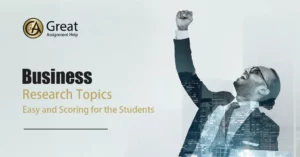
100 Outstanding Business Research Topics To Focus On
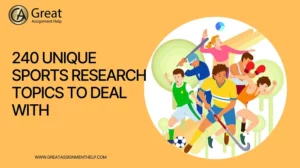
100 Best Sports Research Topics To Deal With
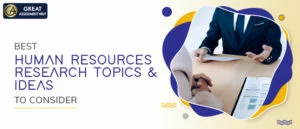
Top 100 Human Resources Research Topics and Ideas
About author.
Jacob Smith
Jacob Smith guides students with writing research paper topics and theses at greatassignmenthelp.com. Read about the author from this page
https://www.greatassignmenthelp.com/
Comments are closed.
- Featured Posts
200 Impressive Business Essay Topics
175 unique bioethics topics to consider for academic paper, apa vs. mla: know the major differences between the citation styles, top 155 java project ideas for beginners and experts, know interesting facts about c language, 100 unique accounting research topics and ideas, understand how to cite a brochure in apa format, 130 engaging ancient history topics for academic writing, 135 unique abnormal psychology essay topics, get help instantly.
Raise Your Grades with Great Assignment Help
We use cookies to give you the best experience possible. By continuing we’ll assume you’re on board with our cookie policy

- A Research Guide
- Research Paper Topics
30 Tips For Finding Great Research Paper Topics for Middle School

Useful information: What is research paper writing and how to format it?
- Is going vegan good for your health?
- The dinosaurs: what should happen for them to evolve again?
- The history of music and its meaning in modern life
- Greenhouse effect: is it natural or artificial
- What are the possible consequences of drugs legalization
- World War II and its impact on the rights of women
- Schools, learning and social networks
- The causes, effects and consequences of earthquakes
- The geological periods of Earth development
- The history of cryptography
- The nature of sports. Why competition is so important for humanity?
- How a person’s behaviour changes in the crowd?
- What is propaganda and how it works?
- Is sexual education important? Why?
- How much can we play computer games to not get addicted?
- The prison system: shall it be reformed?
- The types and forms of poetry: how does poetry evolve?
- Internet safety: what to do if you are threatened or blackmailed?
- The endangered cultures: is it important to preserve them in the age of globalization?
- Gender roles in media and books for children
- The effective strategies of waste recycling
- Shall some media be banned from TV or is censorship always bad?
- Human morality. Is it a national trait or a social construct?
- Multicultural community: do the cultures mix?
- Healthy self-esteem: what can influence it?
- Forming of social hierarchy: does it differ from one group to another?
- Family issues and their impact on the development of the children’s personality
- What Jupiter contains of?
- What is more perspective planet for colonizing: Mars or Venus and why?
- Are cryptocurrencies real currencies?
By clicking "Log In", you agree to our terms of service and privacy policy . We'll occasionally send you account related and promo emails.
Sign Up for your FREE account
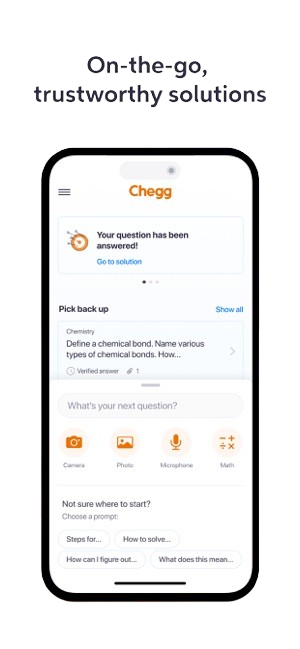
Get a 50% off
Study smarter with Chegg and save your time and money today!

Breaking News

Crafting The Future: An Inside Look at Marshalls High School in Los Angeles

Inclusive Relationship Meaning: Understanding the Concept

How to Get Out of School Excuses

Best Homeschool Curriculum for Autism: A Comprehensive Guide for Parents and Educators

Exciting Research Topics for Middle Schoolers to Fuel Curiosity

Working on the phonological skills by teaching phonemic awareness to the advanced level

What is the goal when de escalating crisis behavior at school ?

Middle school is a time of burgeoning curiosity and the perfect opportunity for students to engage in research that not only educates them academically but also cultivates skills for the future. By encouraging young learners to explore topics they are passionate about, educators and parents play a pivotal role in their intellectual development and the growth of their intrinsic motivation. This blog post outlines a diverse range of research topics suited to the inquiring minds of middle school students, giving them the freedom to deepen their understanding of various subjects while honing critical thinking and independent study skills.
Uncovering the Mysteries of History
Middle schoolers often find history fascinating, particularly when learning about the past from distinct perspectives. Here are some intriguing historical research topics to consider:
- The Unsung Heroes of the Civil Rights Movement: Apart from the well-known leaders, students can explore the contributions of lesser-known figures who played a significant role in the struggle for equality.
- The Impact of Ancient Civilizations on Modern Society: Researching the ways in which the Greeks, Romans, Egyptians, or other ancient societies have influenced contemporary culture, politics, and technology offers a broad canvas for exploration.
- Everyday Life in Different Historical Periods: Focusing on the routines, customs, and technologies that shaped people’s daily lives in times gone by can provide valuable insights into societal norms and individual experiences.
Science and the Natural World
The sciences are a playground of wonder, with an infinity of topics waiting to be explored. Here are some research ideas that can nurture a love for discovery and experimentation:
- Climate Change: Effects and Solutions: Investigating the causes and potential solutions to this global challenge can make students aware of their role in protecting the planet.
- The Wonders of the Solar System: Encouraging a study of the planets, their moons, and the vast expanse of space they inhabit can ignite dreams of interstellar exploration.
- Biodiversity and Ecosystem Conservation: Researching the variety of life on Earth and strategies to protect and sustain ecosystems can foster a sense of environmental stewardship.
Literature, Language, and Creative Expression
Language and literature are potent forms of human expression, allowing students to explore complex ideas and emotions. Here are some topics that bridge the gap between art and academia:
- Interpreting Classic Literature for Modern Relevance: Encouraging the study of timeless works can lead to discussions on their contemporary significance and the evolution of societal values.
- The Structure and Evolution of Language: Investigating the origins and changes in language over time can be a rich area of study, especially when paired with the examination of cultural shifts.
- The Intersection of Art and Literature: Exploring how visual arts and writing intersect to convey messages and emotions can be a fertile ground for interdisciplinary research.
Mathematics and Logic Puzzles
The precision and patterns found in mathematics can be both satisfying and thought-provoking. Middle school students often enjoy the thrill of solving problems and unraveling puzzles. Here are some mathematical research topics that can engage students’ analytical minds:
- Famous Mathematical Conjectures: Researching unsolved problems, such as the Goldbach conjecture or the Riemann hypothesis, can introduce students to the excitement of open questions in mathematics.
- The Application of Math in Various Industries: Investigating how mathematical principles underpin fields like music, art, sports, and technology can illuminate the subject’s real-world utility.
- The History of Mathematical Discoveries: Tracing the lineage of mathematical concepts through different cultures and periods can showcase the universality and timelessness of mathematics.
Social Sciences and Human Interaction
Studying human behavior and society can help students develop empathy and a deeper understanding of the world around them. Here are some social science research ideas to explore:
- The Impact of Social Media on Friendships and Relationships: Research could focus on positive and negative effects, trends, and the future of social interaction.
- Cultural Traditions and Their Meanings: Investigating the origins and contemporary significance of customs from various cultures can foster respect for diversity and a global perspective.
- The Psychology of Decision Making: Exploring the factors that influence human choices, from cognitive biases to social pressures, can provide insights into individual and collective behavior.
Technology and Innovation

Middle schoolers are often tech-savvy and interested in the latest gadgets and advancements. Here are some technology and innovation research topics to tap into that curiosity:
- The Impact of Gaming on Society: Research could examine how video games influence education, social issues, or even career choices.
- Emerging Technologies and Their Ethical Implications: Encouraging students to study technologies like artificial intelligence, gene editing, or wearable tech can lead to discussions on the ethical considerations of their use and development.
- Inventions That Changed the World: Chronicling the history and influence of significant inventions, from the wheel to the internet, can provide a lens through which to view human progress.
By providing middle schoolers with the opportunity to conduct meaningful research in a topic of their choosing, we not only deepen their education but also equip them with the skills and passion for a lifetime of learning. This list is just the beginning; the key is to foster curiosity and guide young minds toward engaging, challenging, and diverse research experiences. Through such explorations, we empower the next generation to think critically, communicate effectively, and, most importantly, to nurture their innate curiosity about the world.
Implementing Research Projects in the Classroom
Encouraging middle school students to undertake research projects requires a strategic approach to ensure sustained interest and meaningful outcomes. Here are some methods educators can employ:
- Mentorship and Support: Pairing students with teacher mentors who can guide them through the research process, provide feedback, and encourage critical thinking is essential for a fruitful research experience.
- Cross-Curricular Integration: Linking research topics to content from different subjects helps students appreciate the interconnectedness of knowledge and develop versatile learning skills.
- Use of Technology and Media: Incorporating digital tools for research, presentation, and collaboration can enhance engagement and teach essential 21st-century skills.
- Presentation and Reflection: Allocating time for students to present their findings nurtures communication skills and confidence, while self-reflection activities help them internalize their learning journey.
These strategies can create a robust framework within which students can pursue their curiosities, leading to a more personalized and impactful educational experience.
What is a good topic to research for middle school?
A good topic for middle school research could delve into the Role of Robotics in the Future of Society . Students can explore how robotics may transform jobs, healthcare, and everyday life. They can examine the balance between automation and human work, predict how robots could augment human abilities, and discuss the ethical dimensions of a robotic future. This inquiry not only captivates the imagination but also encourages critical thinking about technology’s impact on tomorrow’s world.
What are the 10 research titles examples?
- The Evolution of Renewable Energy and Its Future Prospects
- Investigating the Effects of Microplastics on Marine Ecosystems
- The Influence of Ancient Civilizations on Modern Democracy
- Understanding Black Holes: Unveiling the Mysteries of the Cosmos
- The Impact of Augmented Reality on Education and Training
- Climate Change and Its Consequences on Coastal Cities
- The Psychological Effects of Social Media on Teenagers
- Genetic Engineering: The Possibilities and Pitfalls
- Smart Cities: How Technology is Shaping Urban Living
- The Role of Nanotechnology in Medicine: Current Applications and Future Potential
Fascinating Facts About Middle School Research Topics
- Interdisciplinary Impact : Research projects in middle school often blend subjects, such as the integration of art and mathematics when exploring patterns and symmetry, which helps students discover the interconnectivity of different fields of knowledge.
- Skill Building : Engaging in research equips middle schoolers with advanced skills in critical thinking, problem-solving, and time management, which are beneficial across their academic journey and beyond.
- Diversity in Content : Middle school research topics are notably diverse, ranging from examining the role of robotics in society to exploring the psychological effects of social media, catering to a wide array of student interests and strengths.
- Tech Savvy Learning : Technology-based research topics, such as the influence of smart cities or the impact of augmented reality in education, are deeply relevant to tech-savvy middle school students, making learning more engaging and relatable.
- Cultural Relevance : Researching topics like cultural traditions and their meanings encourages middle schoolers to develop a global perspective and fosters a deeper understanding and appreciation for the diversity within their own school community and the world at large.
You May Also Like

More From Author

+ There are no comments
Cancel reply.
Save my name, email, and website in this browser for the next time I comment.

You May Also Like:

- Chess (Gr. 1-4)
- TV (Gr. 1-4)
- Metal Detectors (Gr. 2-6)
- Tetris (Gr. 2-6)
- Seat Belts (Gr. 2-6)
- The Coliseum (Gr. 2-6)
- The Pony Express (Gr. 2-6)
- Wintertime (Gr. 2-6)
- Reading (Gr. 3-7)
- Black Friday (Gr. 3-7)
- Hummingbirds (Gr. 3-7)
- Worst Game Ever? (Gr. 4-8)
- Carnivorous Plants (Gr. 4-8)
- Google (Gr. 4-8)
- Honey Badgers (Gr. 4-8)
- Hyperinflation (Gr. 4-8)
- Koko (Gr. 4-8)
- Mongooses (Gr. 5-9)
- Trampolines (Gr. 5-9)
- Garbage (Gr. 5-9)
- Maginot Line (Gr. 5-9)
- Asian Carp (Gr. 5-9)
- Tale of Two Countries (Gr. 6-10)
- Kevlar (Gr. 7-10)
- Tigers (Gr. 7-11)
- Statue of Liberty (Gr. 8-10)
- Submarines (Gr. 8-12)
- Castles (Gr. 9-13)
- Gutenberg (Gr. 9-13)
- Author's Purpose Practice 1
- Author's Purpose Practice 2
- Author's Purpose Practice 3
- Fact and Opinion Practice 1
- Fact and Opinion Practice 2
- Fact and Opinion Practice 3
- Idioms Practice Test 1
- Idioms Practice Test 2
- Figurative Language Practice 1
- Figurative Language Practice 2
- Figurative Language Practice 3
- Figurative Language Practice 4
- Figurative Language Practice 5
- Figurative Language Practice 6
- Figurative Language Practice 7
- Figurative Language Practice 8
- Figurative Language Practice 9
- Figurative Language of Edgar Allan Poe
- Figurative Language of O. Henry
- Figurative Language of Shakespeare
- Genre Practice 1
- Genre Practice 2
- Genre Practice 3
- Genre Practice 4
- Genre Practice 5
- Genre Practice 6
- Genre Practice 7
- Genre Practice 8
- Genre Practice 9
- Genre Practice 10
- Irony Practice 1
- Irony Practice 2
- Irony Practice 3
- Making Inferences Practice 1
- Making Inferences Practice 2
- Making Inferences Practice 3
- Making Inferences Practice 4
- Making Inferences Practice 5
- Main Idea Practice 1
- Main Idea Practice 2
- Point of View Practice 1
- Point of View Practice 2
- Text Structure Practice 1
- Text Structure Practice 2
- Text Structure Practice 3
- Text Structure Practice 4
- Text Structure Practice 5
- Story Structure Practice 1
- Story Structure Practice 2
- Story Structure Practice 3
- Author's Purpose
- Characterizations
- Context Clues
- Fact and Opinion
- Figurative Language
- Grammar and Language Arts
- Poetic Devices
- Point of View
- Predictions
- Reading Comprehension
- Story Structure
- Summarizing
- Text Structure
- Character Traits
- Common Core Aligned Unit Plans
- Teacher Point of View
- Teaching Theme
- Patterns of Organization
- Project Ideas
- Reading Activities
- How to Write Narrative Essays
- How to Write Persuasive Essays
- Narrative Essay Assignments
- Narrative Essay Topics
- Persuasive Essay Topics
- Research Paper Topics
- Rubrics for Writing Assignments
- Learn About Sentence Structure
- Grammar Worksheets
- Noun Worksheets
- Parts of Speech Worksheets
- Punctuation Worksheets
- Sentence Structure Worksheets
- Verbs and Gerunds
- Examples of Allitertion
- Examples of Hyperbole
- Examples of Onomatopoeia
- Examples of Metaphor
- Examples of Personification
- Examples of Simile
- Figurative Language Activities
- Figurative Language Examples
- Figurative Language Poems
- Figurative Language Worksheets
- Learn About Figurative Language
- Learn About Poetic Devices
- Idiom Worksheets
- Online Figurative Language Tests
- Onomatopoeia Worksheets
- Personification Worksheets
- Poetic Devices Activities
- Poetic Devices Worksheets
- About This Site
- Privacy Policy
- Terms of Use
- Understanding CCSS Standards
- What's New?
Ereading Worksheets
Free reading worksheets, activities, and lesson plans., site navigation.
- Learn About Author’s Purpose
- Author’s Purpose Quizzes
- Character Types Worksheets and Lessons
- List of Character Traits
- Differentiated Reading Instruction Worksheets and Activities
- Fact and Opinion Worksheets
- Irony Worksheets
- Animal Farm Worksheets
- Literary Conflicts Lesson and Review
- New Home Page Test
- Lord of the Flies Chapter 2 Worksheet
- Lord of the Flies Chapter 5 Worksheet
- Lord of the Flies Chapter 6 Worksheet
- Lord of the Flies Chapter 10 Worksheet
- Narrative of the Life of Frederick Douglass
- Sister Carrie
- The Count of Monte Cristo
- The Odyssey
- The War of the Worlds
- The Wizard of Oz
- Mood Worksheets
- Context Clues Worksheets
- Inferences Worksheets
- Main Idea Worksheets
- Making Predictions Worksheets
- Nonfiction Passages and Functional Texts
- Setting Worksheets
- Summarizing Worksheets and Activities
- Short Stories with Questions
- Story Structure Activities
- Story Structure Worksheets
- Tone Worksheets
- Types of Conflict Worksheets
- Reading Games
- Figurative Language Poems with Questions
- Hyperbole and Understatement Worksheets
- Simile and Metaphor Worksheets
- Simile Worksheets
- Hyperbole Examples
- Metaphor Examples
- Personification Examples
- Simile Examples
- Understatement Examples
- Idiom Worksheets and Tests
- Poetic Devices Worksheets & Activities
- Alliteration Examples
- Allusion Examples
- Onomatopoeia Examples
- Onomatopoeia Worksheets and Activities
- Genre Worksheets
- Genre Activities
- Capitalization Worksheets, Lessons, and Tests
- Contractions Worksheets and Activities
- Double Negative Worksheets
- Homophones & Word Choice Worksheets
- ‘Was’ or ‘Were’
- Simple Subjects & Predicates Worksheets
- Subjects, Predicates, and Objects
- Clauses and Phrases
- Type of Sentences Worksheets
- Sentence Structure Activities
- Comma Worksheets and Activities
- Semicolon Worksheets
- End Mark Worksheets
- Noun Worksheets, Lessons, and Tests
- Verb Worksheets and Activities
- Pronoun Worksheets, Lessons, and Tests
- Adverbs & Adjectives Worksheets, Lessons, & Tests
- Preposition Worksheets and Activities
- Conjunctions Worksheets and Activities
- Interjections Worksheets
- Parts of Speech Activities
- Verb Tense Activities
- Past Tense Worksheets
- Present Tense Worksheets
- Future Tense Worksheets
- Point of View Activities
- Point of View Worksheets
- Teaching Point of View
- Cause and Effect Example Paragraphs
- Chronological Order
- Compare and Contrast
- Order of Importance
- Problem and Solution
- Text Structure Worksheets
- Text Structure Activities
- Essay Writing Rubrics
- Narrative Essay Topics and Story Ideas
- Narrative Essay Worksheets & Writing Assignments
- Persuasive Essay and Speech Topics
- Persuasive Essay Worksheets & Activities
- Writing Narrative Essays and Short Stories
- Writing Persuasive Essays
- All Reading Worksheets
- Understanding Common Core State Standards
- Remote Learning Resources for Covid-19 School Closures
- What’s New?
- Ereading Worksheets | Legacy Versions
- Online Figurative Language Practice
- Online Genre Practice Tests
- Online Point of View Practice Tests
- 62 School Project Ideas
- 2nd Grade Reading Worksheets
- 3rd Grade Reading Worksheets
- 4th Grade Reading Worksheets
- 5th Grade Reading Worksheets
- 6th Grade Reading Worksheets
- 7th Grade Reading Worksheets
- 8th Grade Reading Worksheets
- 9th Grade Reading Worksheets
- 10th Grade Reading Worksheets
- Membership Billing
- Membership Cancel
- Membership Checkout
- Membership Confirmation
- Membership Invoice
- Membership Levels
- Your Profile
Want Updates?
101 research paper topics.
- Why do we sleep ?
- How do GPS systems work?
- Who was the first person to reach the North Pole ?
- Did anybody ever escape Alcatraz ?
- What was life like for a gladiator ?
- What are the effects of prolonged steroid use on the human body?
- What happened during the Salem witch trials ?
- Are there any effective means of repelling insects ?
- How did trains and railroads change life in America?
- What may have occurred during the Roswell UFO incident of 1947?
- How is bulletproof clothing made?
- What Olympic events were practiced in ancient Greece?
- What are the major theories explaining the disappearance of the dinosaurs ?
- How was the skateboard invented and how has it changed over the years?
- How did the long bow contribute to English military dominance?
- What caused the stock market crash of 2008?
- How did Cleopatra come to power in Egypt what did she do during her reign?
- How has airport security intensified since September 11 th , 2001?
- What is life like inside of a beehive ?
- Where did hip hop originate and who were its founders?
- What makes the platypus a unique and interesting mammal?
- How does tobacco use affect the human body?
- How do computer viruses spread and in what ways do they affect computers?
- What is daily life like for a Buddhist monk ?
- What are the origins of the conflict in Darfur ?
- How did gunpowder change warfare?
- In what ways do Wal-Mart stores affect local economies?
- How were cats and dogs domesticated and for what purposes?
- What do historians know about ninjas ?
- How has the music industry been affected by the internet and digital downloading?
- What were the circumstances surrounding the death of Osama Bin Laden ?
- What was the women’s suffrage movement and how did it change America?
- What efforts are being taken to protect endangered wildlife ?
- How much does the war on drugs cost Americans each year?
- How is text messaging affecting teen literacy?
- Are humans still evolving ?
- What technologies are available to home owners to help them conserve energy ?
- How have oil spills affected the planet and what steps are being taken to prevent them?
- What was the Magna Carta and how did it change England?
- What is the curse of the pharaohs?
- Why was Socrates executed?
- What nonlethal weapons are used by police to subdue rioters?
- How does the prison population in America compare to other nations?
- How did ancient sailors navigate the globe?
- Can gamblers ever acquire a statistical advantage over the house in casino games?
- What is alchemy and how has it been attempted?
- How are black holes formed?
- How was the assassination of Abraham Lincoln plotted and executed?
- Do the benefits of vaccination outweigh the risks?
- How do submarines work?
- Do lie detector tests accurately determine truthful statements?
- How did Cold War tension affect the US and the world?
- What happened to the lost settlers at Roanoke ?
- How does a hybrid car save energy?
- What ingredients can be found inside of a hotdog ?
- How did Julius Caesar affect Rome?
- What are some common sleep disorders and how are they treated?
- How did the Freedom Riders change society?
- How is internet censorship used in China and around the world?
- What was the code of the Bushido and how did it affect samurai warriors ?
- What are the risks of artificial tanning or prolonged exposure to the sun?
- What programs are available to help war veterans get back into society?
- What steps are involved in creating a movie or television show?
- How have the film and music industries dealt with piracy ?
- How did Joan of Arc change history?
- What responsibilities do secret service agents have?
- How does a shark hunt?
- What dangers and hardships did Lewis and Clark face when exploring the Midwest?
- Has the Patriot Act prevented or stopped terrorist acts in America?
- Do states that allow citizens to carry guns have higher or lower crime rates?
- How are the Great Depression and the Great Recession similar and different?
- What are the dangers of scuba diving and underwater exploration?
- How does the human brain store and retrieve memories ?
- What was the Manhattan Project and what impact did it have on the world?
- How does stealth technology shield aircraft from radar?
- What causes tornadoes ?
- Why did Martin Luther protest against the Catholic Church?
- How does a search engine work?
- What are the current capabilities and future goals of genetic engineers ?
- How did the Roman Empire fall?
- What obstacles faced scientists in breaking the sound barrier ?
- How did the black plague affect Europe?
- What happened to Amelia Earhart ?
- What are the dangers and hazards of using nuclear power ?
- How did Genghis Khan conquer Persia?
- What architectural marvels were found in Tenochtitlan, capital of the Aztec Empire ?
- From where does spam email come and can we stop it?
- How does night vision work?
- How did journalists influence US war efforts in Vietnam ?
- What are the benefits and hazards of medical marijuana ?
- What causes desert mirages and how do they affect wanderers?
- What was the cultural significance of the first moon landing ?
- What are sinkholes and how are they formed?
- Have any psychics ever solved crimes or prevented them from occurring?
- Who is Vlad the Impaler and what is his connection to Count Dracula ?
- What are the risks of climate change and global warming ?
- What treatments are available to people infected with HIV and are they effective?
- Who was a greater inventor, Leonardo di Vinci or Thomas Edison ?
- How are the Chinese and American economies similar and different?
- Why was communism unsuccessful in so many countries?
- In what ways do video games affect children and teenagers?

923 Comments
I like using this website when I assist kids with learning as a lot of these topics are quickly covered in the school systems. Thankyou
Mackenah Nicole Molina
Wow! I always have trouble deiciding what to do a research project on but this list has totally solved that. Now my only problem is choosing what idea on this list I should do first!
Most of these my teacher rejected because apparently ‘these aren’t grade level topics, and I doubt they interest you”
I’m sorry to hear that. Sounds like you will have a potentially valuable character-building experience in the short-term.
Edwin Augusto Galindo Cuba
THIS SITE IS AWESOME, THERE ARE LOTS OF TOPICS TO LEARN AND MASTER OUR SKILLS!
research kid
I need one about animals, please. I have been challenged to a animal research project, Due Friday. I have no clue what to research! somebody help, thanks for reading!
You can do one on bats
For international studies you can do Defense and Security.
This was very helpful.
Research on Ben Franklin? I think THAT will get a real charge out of everyone (hehehehegetit)
Mandy Maher
“Is it possible to colonize Mars?”
maddy burney
these are silly topics
thx for making this real.
more gaming questions!!!!!!
Is it still considered stealing if you don’t get caught?
Yes, yes it is still considered stealing.
I need topics on memes
Mary Nnamani
Please I need project topics on Language Literature
Marcella Vallarino
I would appreciate a list of survey questions for middle school grades 6-8
I need a research topics about public sector management
I NEED FIVE EXAMPLES EACH ON QUALITATIVE AND QUANTITATIVE RESEARCH (EDUCATION, HEALTH, TECHNOLOGY, ECONOMY AND ENGINEERING)
publish research that are interesting please……
hey can you do one on the burmiueda triangle
Anybody know video games effect kids,and,teens. There Fun!!
they’re
I need a topic about woman history if any of u can find 1 please that would be great!
You could research about the history of the astronauts, and of human past (WWI, WWII, etc.)
so about women? Manitoba Women Win the Right to Vote in Municipal Elections, The First Women, January 23, 1849: Elizabeth Blackwell becomes the first woman to graduate from medical school and become a doctor in the United States, Rosa Parks Civil Rights Equal Pay. I have way more. so if you need more just ask.
communism is good
what are you a communist?!?!
Did FDR know about the upcoming attack on Pearl Harbor on 07 DEC 1941.
do you know how babies are born
Christine Singu
kindly assist with a research topic in the field of accounting or auditing
need more about US army
Please can yiu give me a topic in education
I think one should be how can music/Video games can affect the life for people
or How Do Video Games Affect Teenagers?
zimbabwe leader
I think a good topic is supporting the confederate flag!
Need a research topic within the context of students union government and dues payments
do more weird ones plz
joyce alcantara
Hi pls po can you give me a topic relate for humanities pls thank u.
Leave a Reply Cancel reply
Your email address will not be published. Required fields are marked *
Subscribe Now
Popular content.
- Author's Purpose Worksheets
- Characterization Worksheets
- Common Core Lesson and Unit Plans
- Online Reading Practice Tests
- Plot Worksheets
- Reading Comprehension Worksheets
- Summary Worksheets
- Theme Worksheets
New and Updated Pages
- Capitalization Worksheets
- Contractions Worksheets
- Double Negatives Worksheets
- Homophones & Word Choice Worksheets
BECOME A MEMBER!

Exploring Exciting Research Topics for Middle School Students
Are you searching for the best research topics for middle school? If yes, then your search ends here with the best ever research topics for middle school.
Research is an essential aspect of learning, and it is never too early to introduce it to students. Middle school is an excellent time for students to start learning how to conduct research and develop critical thinking skills. By engaging in research projects, students can explore various topics in-depth and develop a deeper understanding of them.
Additionally, research projects can help students develop crucial skills such as time management, organization, and communication. This guide will provide examples of research topics for middle school students and offer tips on how to identify research topics and access scholarly sources. With this guide, students can discover the exciting world of research and the many benefits it offers.
Importance of research topics for middle school students
Table of Contents
Have a close look at the importance of research topics for middle school students.
Develop critical thinking skills
Research topics encourage students to analyze information, think critically about issues and topics, and make informed decisions. This helps them develop their ability to assess evidence and draw conclusions.
Enhance academic skills
Research projects help students develop essential academic skills such as reading, writing, and critical thinking. These skills are critical for success in high school, college, and beyond.
Prepare for high school and beyond
Research projects prepare students for the more in-depth research assignments they will encounter in high school and beyond. It also prepares them for the rigors of college-level research.
Foster creativity
Research projects can provide students with opportunities to explore creative ways of presenting information and engaging with their topic. This can include using technology, art, or multimedia presentations to showcase their findings.
Encourage curiosity
Research projects can encourage students to ask questions, investigate, and discover new information about topics that interest them. This helps them develop a love of learning and become lifelong learners.
Develop time management skills
Research projects require planning and organization, and can help students develop time management skills. This prepares them for managing their time and workload in high school, college, and beyond.
Promote collaboration
Research projects can be done individually or in groups, allowing students to collaborate, share ideas, and learn from one another. This helps them develop teamwork skills and learn to appreciate diverse perspectives.
Increase engagement
Research topics that are relevant and interesting to students can increase engagement and motivation in learning. This can help students become more invested in their education and develop a deeper understanding of the topic.
Improve communication skills
Research projects can help students develop communication skills, such as presenting findings and participating in discussions. This helps them become better communicators and prepares them for future academic and professional pursuits.
Encourage lifelong learning
Research projects can foster a love of learning and encourage students to continue exploring new topics throughout their lives. It helps them develop a sense of intellectual curiosity and a desire for continued personal growth.
Benefits of engaging in research projects
Have a close look at the benefits of engaging in research projects.
Enhances critical thinking skills
Research projects not only require students to gather information but also to analyze, synthesize, and evaluate it from various sources. These skills are essential for developing critical thinking skills, which are crucial for academic and real-life situations.
Promotes problem-solving skills
By engaging in research projects, students learn to identify problems, develop hypotheses, and test them. Through this process, they acquire problem-solving skills, which are essential for academic success and life beyond school.
Develops creativity
Research projects often require students to think outside the box and come up with innovative solutions. This encourages creativity, which is a valuable skill for success in many areas of life, from science to the arts.
Improves communication skills
Research projects often require students to present their findings in written or oral form, which helps improve their communication skills. The ability to communicate effectively is crucial for academic and professional success.
Boosts confidence
Successfully completing a research project can give students a sense of accomplishment and boost their confidence in their abilities. This, in turn, can lead to greater motivation and engagement in learning.
Provides hands-on learning experiences
Research projects allow students to apply what they have learned in the classroom to real-world situations, providing hands-on learning experiences. This can help students connect what they learn in school to the world around them.
Encourages independent learning
Research projects require students to work independently and take ownership of their learning, which encourages self-directed learning. This is a valuable skill that can help students become lifelong learners.
Builds research skills
Engaging in research projects helps students build research skills, such as conducting literature reviews, designing research studies, and analyzing data. These skills are essential for success in college and many careers.
Prepares for college and career
Research projects provide valuable experience that can prepare students for college and careers that require research and critical thinking skills. These skills are highly valued by colleges and employers.
Fosters a love of learning
Engaging in research projects can foster a love of learning and curiosity about the world around us. This can lead to a lifelong passion for learning and exploration.
Research Topics for Middle School
Have a close look at research topics for middle school.
STEM Research Topics
Here are some STEM research topics that middle school students can explore:
- Renewable energy sources and their impact on the environment
- The effects of pollution on local ecosystems
- Investigating the properties of different types of soils
- Building and testing a simple machine or robot
- The effects of different types of fertilizers on plant growth
- The relationship between exercise and heart rate
- The chemistry of food preservation
- The physics of roller coasters and amusement park rides
- Investigating the efficiency of different types of insulation materials
- The effects of music on the brain and body
How to Identify a STEM Research Topic
Have a close look at how to identify a stem research topic.
Identify your interests
Think about what subjects interest you in STEM, such as biology, chemistry, physics, engineering, or computer science.
Explore current events
Look at recent news articles or scientific journals to see what topics are currently being researched and discussed in STEM fields.
Consider problems and challenges
Think about problems or challenges in the world that could be addressed with STEM research, such as climate change, renewable energy, or medical advancements.
Brainstorm ideas
Write down any ideas that come to mind based on your interests and the topics you have explored. Consider how you could approach these topics from a STEM perspective.
Research existing studies
Look at existing research studies in your area of interest to see what has already been done and what gaps still exist that you could explore.
Consult with experts
Seek guidance from teachers, professors, or professionals in STEM fields to help you identify potential research topics and provide resources.
By following these steps, you can identify a STEM research topic that aligns with your interests and has the potential to contribute to the field.
Benefits of STEM Research Projects
Engaging in STEM research projects can offer a variety of benefits for middle school students, including:
Development of critical thinking skills
STEM research projects require students to analyze data, identify patterns, and draw conclusions, which enhances their critical thinking abilities.
Hands-on learning experiences
STEM research projects provide opportunities for students to apply what they have learned in the classroom to real-world situations, which offers hands-on learning experiences.
Preparation for future careers
STEM research projects can prepare students for careers in science, technology, engineering, and math, as they develop skills relevant to these fields.
Fostering creativity
STEM research projects often require students to think outside the box and come up with innovative solutions, which fosters creativity.
Development of research skills
Engaging in STEM research projects helps students build research skills, such as designing experiments, collecting and analyzing data, and drawing conclusions.
Collaboration
STEM research projects can be done individually or in groups, allowing students to collaborate, share ideas, and learn from one another.
Improvement of communication skills
STEM research projects often require students to present their findings in written or oral form, which helps improve their communication skills.
Boosting self-confidence
Successfully completing a STEM research project can give students a sense of accomplishment and boost their self-confidence in their abilities.
Encouragement of lifelong learning
STEM research projects can foster a love of learning and encourage students to continue exploring new topics throughout their lives.
Social Science Research Topics
Examples of social science research topics for middle school students:
- The impact of social media on mental health.
- Gender inequality in education and the workplace.
- The effects of poverty on child development.
- The relationship between stress and physical health.
- The role of parenting styles in child behavior.
- The effects of bullying on mental health and social relationships.
- The impact of immigration policies on families.
- The influence of media on body image and self-esteem.
- The relationship between personality and academic achievement.
- The effects of technology on social relationships.
How to identify a social science research topic:
To identify a social science research topic, you can follow these steps:
Identify a broad area of interest
Begin by thinking about the general field of social science that interests you the most. This could be psychology, sociology, anthropology, economics, political science, or any other related field.
Narrow down the focus
Once you have identified a broad area of interest, narrow down your focus to a specific topic or issue within that field. For example, if you are interested in psychology, you might focus on a specific mental health condition or treatment.
Consider current events
Look at current events or issues that are receiving a lot of attention in the news or media. Consider how you can apply social science research methods to study these topics in more depth.
Talk to your teachers, professors, or other experts in the field to get ideas for research topics. They may be able to provide you with valuable insights and suggestions.
Conduct a literature review
Conducting a literature review involves reading published research studies, articles, and books related to your topic. This will help you understand what research has already been done in the field and identify any gaps or areas that need further exploration.
Refine your research question
Once you have identified a topic of interest, refine your research question by making it more specific and focused. This will help you to develop a clear research plan and stay on track during your project.
Benefits of social science research projects
Have a close look the benefits of social science research topics.
Improved critical thinking skills
Social science research projects require students to analyze and evaluate information from various sources, which helps develop their critical thinking skills.
Enhance problem-solving skills
Through research, students can identify problems and find solutions by gathering and analyzing data, developing hypotheses, and testing them.
Develop empathy
Social science research projects often require students to explore topics related to human behavior and interactions, which can help them develop empathy and understanding for others.

Foster a love of learning
Engaging in social science research projects can foster a love of learning and curiosity about the world around us.
Develop research skills
Social science research projects allow students to develop important research skills such as conducting literature reviews, designing research studies, and analyzing data.
Enhance communication skills
Social science research projects often require students to present their findings in written or oral form, which can help improve their communication skills.
Promote civic engagement
Social science research projects can encourage students to become active and engaged citizens by exploring issues related to society and government.
Expand cultural awareness
Social science research projects can help students understand and appreciate different cultures, beliefs , and perspectives.
Prepare for college and career
Social science research projects provide valuable experience that can prepare students for college and careers that require research, critical thinking, and communication skills.
Humanities Research Topics
Examples of humanities research topics for middle school students:
- The impact of art and music on society
- The history and cultural significance of traditional dress
- The role of religion in shaping world events
- The influence of ancient civilizations on modern society
- The significance of oral history in preserving cultural traditions
- The portrayal of gender roles in literature and media
- The impact of social media on interpersonal communication
- The role of government in promoting human rights
- The significance of historical landmarks in shaping national identity
- The portrayal of mental health in literature and media.
How to identify a humanities research topic
Have a close look at how to identify a humanities research topics.
Brainstorm topics
Begin by brainstorming ideas that interest you or your students. This can include topics related to literature, history, art, philosophy, or culture.
Narrow down the ideas
Once you have a list of potential topics, start narrowing them down by considering the available resources, the level of complexity, and the relevance to current events or personal interests.
Conduct preliminary research on the narrowed-down topics to ensure that there is enough information available and that the topic is suitable for a research project.
Consider different perspectives
Humanities topics often involve multiple perspectives and interpretations, so it’s essential to consider different viewpoints and debates related to the topic.
Consult with teachers or librarians
Ask for input from teachers or librarians who specialize in humanities subjects. They may have ideas for topics, recommended resources, or can help guide students towards a suitable topic.
Refine the topic
Once a suitable topic has been identified, refine it further by clarifying the research question, determining the scope of the project, and outlining the research methodology.
Benefits of humanities research projects
Have a close look at the benefits of humanities research projects.
Developing critical thinking skills
Humanities research projects require students to analyze information, form opinions, and develop arguments, which helps them to think critically.
Enhancing creativity
Humanities research projects often require students to think creatively about how they present their findings and engage with their topic.
Improving communication skills
Humanities research projects often involve written or oral presentations, which help students to develop their communication skills.
Encouraging curiosity
Humanities research projects can encourage students to ask questions and explore new topics, fostering their curiosity.
Developing empathy
Humanities research projects often involve examining different perspectives and cultures, which can help students to develop empathy and understanding for others.
Preparing for higher education
Humanities research projects provide students with valuable research skills and a foundation for more advanced research projects in high school and college.
Increasing engagement
Research topics that are relevant and interesting to students can increase engagement and motivation in learning.
Encouraging lifelong learning
Humanities research projects can foster a love of learning and encourage students to continue exploring new topics throughout their lives.
Interdisciplinary Research Topics
Examples of interdisciplinary research topics for middle school students:
- How does climate change affect biodiversity?
- The impact of technology on society and culture.
- The role of music in mental health.
- How do food and nutrition affect brain development and academic performance?
- The history and science of flight.
- How does social media influence body image and self-esteem?
- The connection between art and science in creating visual illusions.
- The impact of sports on physical and mental health.
- The psychology and biology of addiction.
- The history and science of ancient civilizations.
How to identify an interdisciplinary research topic
Have a close look at how to identify an interdisciplinary research topic.
Look for common themes or issues
Think about topics that overlap between different subjects. For example, climate change is a topic that can be explored in science, social studies, and literature.
Identify the questions
Once you have identified a common theme or issue, think about the questions that arise from it. What do you want to learn or investigate about this topic?
When exploring interdisciplinary topics, it’s important to consider different perspectives from different subjects. For example, if you’re researching climate change, you might want to explore the scientific causes and effects, the social and economic impacts, and the ethical and moral considerations.
Brainstorm possible connections
Consider how the different subjects you’re interested in can connect to the topic you want to explore. For example, if you’re interested in exploring the history of music, you might look at how different historical events influenced music and how music, in turn, influenced history.
Refine your topic
Once you have some possible connections, refine your topic by focusing on a specific aspect or question. This will help you narrow your focus and make your research more manageable.
If you’re having trouble identifying an interdisciplinary research topic, consider consulting with your teachers or librarians. They may be able to offer guidance or suggest resources that can help you identify a topic.
Benefits of interdisciplinary research projects
Have a close look at the benefits of interdisciplinary research projects.
Encouraging creativity and innovation
Interdisciplinary research topics often require students to approach problems from different angles and find creative solutions by combining knowledge from different fields.
Enhancing critical thinking and problem-solving skills
Interdisciplinary research requires students to analyze and synthesize information from various sources, think critically, and solve complex problems.
Promoting collaboration and teamwork
Interdisciplinary research often involves working in teams, which fosters collaboration, communication, and teamwork skills.
Providing a broader perspective
Interdisciplinary research allows students to gain a more comprehensive understanding of a topic by examining it from multiple perspectives.
Developing research skills
Interdisciplinary research projects help students develop research skills, such as conducting literature reviews, collecting and analyzing data, and presenting findings.
Preparing for future academic and career opportunities
Interdisciplinary research projects provide students with valuable experience and skills that can prepare them for future academic and career opportunities that require interdisciplinary approaches.
Resources for Conducting Research
There are various resources available for middle school students to conduct research. Here are some examples:
School Library
The school library is a great resource for finding books, academic journals, and other resources on a wide range of topics. Librarians can also provide guidance on how to find and evaluate sources.
Online Databases
There are several online databases that provide access to academic journals, magazines, and other scholarly sources. Examples include JSTOR, Project MUSE, and Academic Search Premier.
Google Scholar
Google Scholar is a search engine that allows you to find scholarly articles, books, and conference papers. It can be a useful tool for finding academic sources on specific topics.
Public Library
Public libraries also offer access to a wide range of resources, including books, databases, and other materials. They may also offer research assistance and guidance.
Government Websites
Government websites can be a great resource for research on topics such as history, social studies, and science. Examples include the Library of Congress, the National Archives, and the National Science Foundation.
Online Archives
Many organizations and institutions maintain online archives of historical documents, images, and other resources. Examples include the Smithsonian Institution, the National Archives, and the Digital Public Library of America.
Interviews and Surveys
Conducting interviews and surveys can be a valuable way to gather information for research projects. This can involve reaching out to experts in a particular field or surveying individuals to gather data.
Online Learning Platforms
Online learning platforms, such as Coursera and edX, offer courses on a wide range of topics. These courses often provide access to readings, videos, and other resources that can be useful for research projects.
How to access scholarly sources
Accessing scholarly sources can be done through various means, including:
Using academic search engines
There are several academic search engines available that provide access to scholarly sources. Some popular examples include Google Scholar, JSTOR, and PubMed. These search engines allow users to search for academic articles, journals, and other research papers.
Using academic databases
Many universities and libraries offer access to academic databases, such as EBSCO and ProQuest, which contain a vast collection of scholarly sources. Students can check with their school or local library to see if they have access to such databases.
Checking library catalogs
Most libraries have a catalog that contains information about the books and other materials they have available. Students can use these catalogs to search for scholarly sources, such as books, journals, and other publications.
Contacting experts
Students can contact experts in their field of study or a related field to ask for recommendations for scholarly sources. Experts may be able to suggest relevant academic articles, books, or other resources.
Using interlibrary loan services
If a student cannot find a specific scholarly source at their own library, they can use interlibrary loan services to request the material from another library. This service allows libraries to share materials with one another, giving students access to a wider range of scholarly sources.
It is important to note that some scholarly sources may require payment or subscription access. However, many sources are available for free or can be accessed through a library’s subscription.
In conclusion, research projects provide middle school students with an opportunity to explore various subjects in depth, develop their critical thinking skills, and gain a better understanding of the world around them.
STEM, social sciences, humanities, and interdisciplinary research topics offer a broad range of options for students to choose from, and there are various resources available for conducting research, including online databases and access to scholarly sources.
By engaging in research projects, students can improve their academic performance, enhance their problem-solving abilities, and gain valuable experience that will benefit them in the future.
Therefore, we encourage all middle school students to take advantage of these opportunities and engage in research projects that interest them.
Frequently Asked Questions
What is the purpose of research topics for middle school students.
The purpose of research topics for middle school students is to encourage students to explore their interests, develop critical thinking skills, and learn how to conduct research. It also helps them to understand the importance of research in various fields and how it can contribute to solving real-world problems.
How do I choose a research topic for middle school?
Choosing a research topic for middle school involves identifying your interests, brainstorming ideas, and considering the resources available to you. You can start by thinking about a subject that you are curious about or passionate about, and then narrowing down your focus to a specific aspect or question you want to investigate.
What are some tips for conducting research as a middle school student?
Some tips for conducting research as a middle school student include developing a research question, finding reliable sources, taking thorough notes, organizing your information, and citing your sources properly. It’s also important to plan your time wisely and seek help from teachers or librarians if you need assistance.
Can middle school students access scholarly sources online?
Yes, many scholarly sources are available online and can be accessed by middle school students through databases provided by their school or public libraries. Some popular databases for middle school students include JSTOR, ProQuest, and EBSCOhost.
How can research projects benefit middle school students in the long term?
Research projects can benefit middle school students in the long term by developing important skills such as critical thinking, problem-solving, communication, and time management. It also prepares them for future academic endeavors, and exposes them to potential career paths or fields of interest.
Similar Articles

How To Do Homework Fast – 11 Tips To Do Homework Fast
Homework is one of the most important parts that have to be done by students. It has been around for…

How to Write an Assignment Introduction – 6 Best Tips
In essence, the writing tasks in academic tenure students are an integral part of any curriculum. Whether in high school,…
Leave a Comment Cancel Reply
Your email address will not be published. Required fields are marked *
This site uses Akismet to reduce spam. Learn how your comment data is processed .
- Skip to primary navigation
- Skip to main content
- Skip to primary sidebar
Teaching Expertise
- Classroom Ideas
- Teacher’s Life
- Deals & Shopping
- Privacy Policy
Research Activities For Middle School: Discussions, Tips, Exploration, And Learning Resources
February 6, 2024 // by Josilyn Markel
Learning to research effectively is an important skill that middle-school-aged students can learn and carry with them for their whole academic careers. The students in question will use these skills for everything from reading news articles to writing a systematic review of their sources. With increased demands on students these days, it’s never too early to introduce these sophisticated research skills.
We’ve collected thirty of the best academic lessons for middle school students to learn about sophisticated research skills that they’ll use for the rest of their lives.
1. Guiding Questions for Research
When you first give a research project to middle school students, it’s important to make sure that they really understand the research prompts. You can use this guiding questions tool with students to help them draw on existing knowledge to properly contextualize the prompt and assignment before they even pick up a pen.
Learn More: Mrs. Spangler in the Middle
2. Teaching Research Essential Skills Bundle
This bundle touches on all the writing skills, planning strategies, and so-called soft skills that students will need to get started on their first research project. These resources are especially geared towards middle school-aged students to help them with cognitive control tasks plus engaging and active lessons.
Learn More: Pinterest
3. How to Develop a Research Question
Before a middle school student can start their research time on task, they have to form a solid research question. This resource features activities for students that will help them identify a problem and then formulate a question that will guide their research project going first.
Learn More: YouTube
4. Note-Taking Skills Infographic
For a strong introduction and/or systematic review of the importance of note-taking, look no further than this infographic. It covers several excellent strategies for taking the most important info from a source, and it also gives tips for using these strategies to strengthen writing skills.
Learn More: Word Counter
5. Guide to Citing Online Sources
One of the more sophisticated research skills is learning to cite sources. These days, the internet is the most popular place to find research sources, so learning the citation styles for making detailed citations for internet sources is an excellent strategy. This is a skill that will stick with middle school students throughout their entire academic careers!
Learn More: Educator’s Technology
6. Guided Student-Led Research Projects
This is a great way to boost communication between students while also encouraging choice and autonomy throughout the research process. This really opens up possibilities for students and boosts student activity and engagement throughout the whole project. The group setup also decreases the demands on students as individuals.
Learn More: The Thinker Builder
7. Teaching Students to Fact-Check
Fact-checking is an important meta-analytic review skill that every student needs. This resource introduces probing questions that students can ask in order to ensure that the information they’re looking at is actually true. This can help them identify fake news, find more credible sources, and improve their overall sophisticated research skills.
Learn More: Just Add Students
8. Fact-Checking Like a Pro
This resource features great teaching strategies (such as visualization) to help alleviate the demands on students when it comes to fact-checking their research sources. It’s perfect for middle school-aged students who want to follow the steps to make sure that they’re using credible sources in all of their research projects, for middle school and beyond!
9. Website Evaluation Activity
With this activity, you can use any website as a backdrop. This is a great way to help start the explanation of sources that will ultimately lead to helping students locate and identify credible sources (rather than fake news). With these probing questions, students will be able to evaluate websites effectively.
10. How to Take Notes in Class
This visually pleasing resource tells students everything they need to know about taking notes in a classroom setting. It goes over how to glean the most important information from the classroom teacher, and how to organize the info in real-time, and it gives tips for cognitive control tasks and other sophisticated research skills that will help students throughout the research and writing process.
Learn More: Visualistan
11. Teaching Research Papers: Lesson Calendar
If you have no idea how you’re going to cover all the so-called soft skills, mini-lessons, and activities for students during your research unit, then don’t fret! This calendar breaks down exactly what you should be teaching, and when. It introduces planning strategies, credible sources, and all the other research topics with a logical and manageable flow.
Learn More: Discover Hub Pages
12. Google Docs Features for Teaching Research
With this resource, you can explore all of the handy research-focused features that are already built into Google Docs! You can use it to build activities for students or to make your existing activities for students more tech-integrated. You can use this tool with students from the outset to get them interested and familiar with the Google Doc setup.
13. Using Effective Keywords to Search the Internet
The internet is a huge place, and this vast amount of knowledge puts huge demands on students’ skills and cognition. That’s why they need to learn how to search online effectively, with the right keywords. This resource teaches middle school-aged students how to make the most of all the search features online.
Learn More: Teachers Pay Teachers
14. How to Avoid Plagiarism: “Did I Plagiarize?”
This student activity looks at the biggest faux pas in middle school research projects: plagiarism. These days, the possibilities for students to plagiarize are endless, so it’s important for them to learn about quotation marks, paraphrasing, and citations. This resource includes information on all of those and in a handy flow chart to keep them right!
Learn More: Twitter
15. 7 Tips for Recognizing Bias
This is a resource to help middle school-aged students recognize the differences between untrustworthy and credible sources. It gives a nice explanation of sources that are trustworthy and also offers a source of activities that students can use to test and practice identifying credible sources.
Learn More: We Are Teachers
16. UNESCO’s Laws for Media Literacy
This is one of those great online resources that truly focuses on the students in question, and it serves a larger, global goal. It offers probing questions that can help middle school-aged children determine whether or not they’re looking at credible online resources. It also helps to strengthen the so-called soft skills that are necessary for completing research.
Learn More: SLJ Blogs
17. Guide for Evaluating a News Article
Here are active lessons that students can use to learn more about evaluating a news article, whether it’s on a paper or online resource. It’s also a great tool to help solidify the concept of fake news and help students build an excellent strategy for identifying and utilizing credible online sources.
Learn More: Valencia College
18. Middle School Research Projects Middle School Students Will Love
Here is a list of 30 great research projects for middle schoolers, along with cool examples of each one. It also goes through planning strategies and other so-called soft skills that your middle school-aged students will need in order to complete such projects.
Learn More: Madly Learning
19. Teaching Analysis with Body Biographies
This is a student activity and teaching strategy all rolled into one! It looks at the importance of research and biographies, which brings a human element to the research process. It also helps communication between students and helps them practice those so-called soft skills that come in handy while researching.
Learn More: Study All Knight
20. Top Tips for Teaching Research in Middle School
When it comes to teaching middle school research, there are wrong answers and there are correct answers. You can learn all the correct answers and teaching strategies with this resource, which debunks several myths about teaching the writing process at the middle school level.
Learn More: Teaching ELA with Joy
21. Teaching Students to Research Online: Lesson Plan
This is a ready-made lesson plan that is ready to present. You don’t have to do tons of preparation, and you’ll be able to explain the basic and foundational topics related to research. Plus, it includes a couple of activities to keep students engaged throughout this introductory lesson.
Learn More: Kathleen Morris
22. Project-Based Learning: Acceptance and Tolerance
This is a series of research projects that look at specific problems regarding acceptance and tolerance. It offers prompts for middle school-aged students that will get them to ask big questions about themselves and others in the world around them.
Learn More: Sandy Cangelosi
23. 50 Tiny Lessons for Teaching Research Skills in Middle School
These fifty mini-lessons and activities for students will have middle school-aged students learning and applying research skills in small chunks. The mini-lessons approach allows students to get bite-sized information and focus on mastering and applying each step of the research process in turn. This way, with mini-lessons, students don’t get overwhelmed with the whole research process at once. In this way, mini-lessons are a great way to teach the whole research process!
24. Benefits of Research Projects for Middle School Students
Whenever you feel like it’s just not worth it to go to the trouble to teach your middle school-aged students about research, let this list motivate you! It’s a great reminder of all the great things that come with learning to do good research at an early age.
Learn More: Thrive in Grade Five
25. Top 5 Study and Research Skills for Middle Schoolers
This is a great resource for a quick and easy overview of the top skills that middle schoolers will need before they dive into research. It outlines the most effective tools to help your students study and research well, throughout their academic careers.
Learn More: Meagan Gets Real
26. Research with Informational Text: World Travelers
This travel-themed research project will have kids exploring the whole world with their questions and queries. It is a fun way to bring new destinations into the research-oriented classroom.
Learn More: The Superhero Teacher
27. Project-Based Learning: Plan a Road Trip
If you want your middle school-aged students to get into the researching mood, have them plan a road trip! They’ll have to examine the prompt from several angles and collect data from several sources before they can put together a plan for an epic road trip.
Learn More: Appletastic Learning
28. Methods for Motivating Writing Skills
When your students just are feeling up to the task of research-based writing, it’s time to break out these motivational methods. With these tips and tricks, you’ll be able to get your kids in the mood to research, question, and write!
29. How to Set Up a Student Research Station
This article tells you everything you need to know about a student center focused on sophisticated research skills. These student center activities are engaging and fun, and they touch on important topics in the research process, such as planning strategies, fact-checking skills, citation styles, and some so-called soft skills.
Learn More: Upper Elementary Snapshots
30. Learn to Skim and Scan to Make Research Easier
These activities for students are geared towards encouraging reading skills that will ultimately lead to better and easier research. The skills in question? Skimming and scanning. This will help students read more efficiently and effectively as they research from a variety of sources.

- Master Your Homework
- Do My Homework
Ideas for Middle School Research Projects
Middle school students often find themselves looking for research project ideas that are both interesting and engaging. While the exact topics may vary based on age, subject area, or teacher preference, it is important to ensure middle schoolers have an opportunity to explore their own interests through relevant projects. This article provides a comprehensive overview of potential research project ideas suitable for middle school classrooms and suggests ways in which teachers can assist their students in researching these topics effectively. By considering some of the unique challenges associated with this educational level, educators can create meaningful learning opportunities for their pupils while guiding them towards further understanding of complex concepts within diverse subject areas.
I. Introduction
Ii. identifying a research topic, iii. developing an argumentative thesis statement, iv. gathering information and sources, v. outlining the project structure, vi. writing the report, vii. presentation of findings.
Writing a research paper is an important part of any student’s academic journey. Middle schoolers have unique opportunities to explore different topics that are engaging and relevant to their current learning level. From making connections with history and modern society, to exploring natural phenomena or the power of technology, there are plenty of interesting ideas for research papers at this age.
- How do global warming trends influence local weather patterns?
- What can be done to reduce pollution in urban areas?
Students can also delve into popular culture or even STEM topics such as robotics and coding programs. Researching controversial issues like immigration policies or healthcare reform helps students understand complex topics from multiple angles:
- What factors should be considered when developing new immigration laws?
Selecting a research topic can be a daunting task, but with the right approach it is possible to find an appropriate and interesting subject. At the middle school level, students are often limited in scope due to their age and lack of experience; however, there remain ample topics for exploration.
- The importance of physical education in schools.
- Factors that influence teen suicide rates.
In order to construct an argumentative thesis statement, it is necessary to understand the fundamentals of writing a strong and convincing argument. This includes selecting a topic that has two distinct sides, researching both perspectives thoroughly and then using evidence to support your own opinion.
- Step 1: Selecting A Topic
When deciding on research paper topics for middle school students, pick something with multiple points of view so that there is room for debate. Consider current issues such as gun control or standardized testing in education; any controversial topic can make great fodder for an argumentative essay. It’s also important to choose one side or another early on – you will have difficulty making an effective case if you remain undecided by the end!
- Step 2: Conducting Research & Building Evidence
Accumulating Knowledge and Resources: Gathering information for your research paper can be an overwhelming process, but by breaking it down into manageable steps you’ll have the confidence to tackle any topic. The first step is finding reliable sources of information; look for credible online databases like those from universities or established organizations in addition to books, magazines, and newspapers. You should also consider using primary sources such as interviews or surveys if available. As a middle schooler researching potential topics could be especially daunting – why not begin with something close-to-home that interests you? Here are some suggested research paper topics suited for young learners:
- Exploring Different Forms of Renewable Energy Sources
- Examining the Benefits of Eating Organic Foods
When it comes to outlining the project structure, there are several factors that need to be taken into consideration. From deciding what research paper topics for middle school students should tackle, to selecting which materials and resources will best suit their needs.
- Societal Impact of Technology on Education
In addition, consider ways in which you can ensure students stay focused throughout their project as well as how you can help them reach a successful outcome. For example: setting achievable goals along with realistic timelines for completion; providing helpful feedback and assistance when needed; using data visualization tools or storyboards where appropriate. .
This section focuses on the preparation and writing of a report. To begin with, there are three primary components to consider: research, structure, and language.
- Research is essential for any successful project; it requires collecting information from reliable sources in order to support your argument or point of view.
- Structure helps organize thoughts into logical sections that clearly convey ideas through appropriate sequencing.
Middle school students may encounter an assignment requiring them to write a comprehensive paper on a particular topic.
In either case
Evaluating and Explaining Findings The research conducted in this paper has yielded a variety of findings, each worth exploring and further understanding. For example, data collected on the topic of student success showed that students who participated in extra-curricular activities had significantly higher GPAs than those who did not participate. Similarly, it was found that when given the opportunity to pick their own research paper topics for middle school classes – such as “the effects of technology on society” or “the benefits of healthy eating habits” – students were more likely to stay engaged with the assignment and show greater interest overall.
On the other hand, while exploration into different academic models revealed promising results concerning student performance based upon teaching styles employed by teachers (such as inquiry-based learning), it was noted that socio-economic factors outside of an educational setting still presented notable roadblocks for some participants regardless which approach was used. These revelations indicate a need for additional strategies to be implemented both inside and outside classrooms to ensure equitable access and outcomes among all learners despite external influences beyond their control.
To conclude, middle school research projects can be a great opportunity to teach students the fundamentals of effective research and provide them with an introduction to understanding complex topics. These ideas for middle school research projects are just some of the many possible ways that teachers and educators can help their students develop this important skill set. With proper guidance from experienced professionals and access to reliable sources, these research project assignments can become engaging learning experiences for everyone involved.
Upcoming Summer 2024 Application Deadline is May 12, 2024.
Click here to apply.

Featured Posts

How To Get Into MIT: 9 Insider Secrets From An MIT Alum

Summer Discovery at UCLA’s Anderson School of Management - Is It Worth It?

8 STEM Programs for Middle School Students

7 Coding Programs for High School Students

Applying to the Congress of Future Medical Leaders? Here Are 10 Tips to Help You Out

California State Summer School for the Arts (CSSSA) Should You Do It?

10 Free Engineering Programs for High School Students

10 Online Summer Programs for Middle School Students

Engineering Summer Academy at Penn (ESAP) - Our Review

Should You Invest in EdVize as an Educational Consultant?
10 Research Opportunities for Middle School Students
If you're aiming to lay a strong foundation for your academic journey, starting early can make all the difference. Engaging in research-based programs during these formative years can ignite a passion for learning, shape future interests, and set the stage for success in high school and beyond.
That's why we've curated a list of ten research opportunities for middle school students which offer a chance to delve into diverse fields of study, from science and technology to mathematics and beyond. Many of them provide financial aid and scholarships as well.
1. Lumiere Junior Explorer Program
The Lumiere Junior Explorer Program is an 8-week program for middle school students to work one-on-one with a mentor to explore their academic interests and build a project they are passionate about . Our mentors are scholars from top research universities such as Harvard, MIT, Stanford, Yale, Duke and LSE .
During this program, spanning weeks 1 to 4, participants will delve into four distinct topics within their selected track. In weeks 5 to 6, the focus intensifies as participants embark on a deep dive into one specific topic area and finally, weeks 7 to 8 are dedicated to project implementation, with participants receiving guidance and support from their mentors as they bring their projects to life.
You can find the application form here.
Location: Fully Virtual
Dates: Multiple cohorts throughout the year
Cost: $1990
Age requirements: Grade 6 - 8
Deadline: Multiple rolling deadlines for JEP cohorts across the year, you can apply using this application link ! If you'd like to take a look at the cohorts + deadlines for 2024, you can refer to this page!
2. Junior Scientist Training Program at Scripps Research
Throughout the process of designing and executing a research project, students will acquire invaluable practical skills. They will have the opportunity to participate in laboratory tours and engage in various STEM activities . By the end of the week, students will showcase their findings to their peers through presentations. Additionally, participants will receive a certificate of completion from Scripps Research, recognizing their successful participation in the program.
To begin the application process for the Junior Scientist Training Program for your middle school child or children, the first step is to create a login using your personal information. After completing the login process, you'll have the opportunity to register your child and any additional middle school children through the provided link .
Location : La Jolla, California
Dates : TBD
Cost : $300
Age requirements : Rising 6-8th graders
Deadline : Rolling, registration ends on May 13th.
3. Summer Teen Research Program
The Lawrence program at UC Berkeley is a unique research opportunity for middle school students to explore the wonders of science firsthand!
This one-week research program offers immersive experiences, hands-on experiments, and exciting campus tours designed to spark curiosity and ignite a passion for STEM . With engaging lab sessions, interactions with faculty and students, and exposure to diverse STEM career paths, The Lawrence program provides a dynamic learning environment where students can thrive and grow.
There are four programs available for middle school students. All these programs have a research component in them.
Body Systems and Biomedical Innovations
Coding and Engineering Nano-Satellites
Solar Energy and Electrical Engineering
Designing and Engineering Bridges
Note: Optional Residential Add-on can only be purchased in conjunction with a daytime Teen Research Program offered during the same week. Additionally financial aid is available for this program.
Find the registration link here.
Location : UC Berkeley Campus
Dates : Sunday, June 23, at 4:00 p.m. and ends Friday, June 28, at 5:00 p.m.
Age requirements : Rising 7th-9th graders
Deadline : May 15th, 2024.
4. Sounds of New York City (SONYC)
The SONYC program is an innovative platform designed to ignite and enrich students' passion for science, technology, engineering, and mathematics (STEM). Through a dynamic curriculum crafted to delve deep into the realms of engineering, physical and computer sciences, as well as natural phenomena such as waves and sound, SONYC fosters a profound understanding and appreciation for these disciplines.
This program is about active engagement and exploration where students delve into the research work of intricate workings of microcontrollers, sensors, and various hardware components, unravel the mysteries of circuitry, electronics, and coding, and gain invaluable insights into how scientists and engineers apply fundamental principles to tackle real-world challenges.
To apply, submit the online application which includes questions about your personal and academic history and two short essay responses. Find the application link here.
Note : Students who live in New York City are only eligible. Students should also have a strong academic record and demonstrated interest in science.
Location : New York University
Dates : July 8 - August 4 Orientation: June 28 (via Zoom 1:00 - 4:00 PM ET)
Cost : Full Scholarship
Age requirements : 12- 14 years.
Deadline : April, 14th.
5. Science of Smart Cities (SoSC)
The School of Sustainable Cities (SoSC) is a three-week education program where students get invaluable opportunities to research about the developments in energy, engineering, computer science, and urban/environmental science.
The program's focus on research extends across various disciplines, from understanding the intricacies of energy systems to analyzing the impact of urbanization on the environment. Students have access to state-of-the-art facilities and resources, enabling them to conduct experiments, gather data, and draw informed conclusions.
Students are encouraged to ask questions, challenge assumptions, and pursue their interests through independent research projects. SoSC also emphasizes the importance of community-engaged research, where students collaborate with local organizations and stakeholders to address pressing issues facing their communities.
To apply, submit the online application which includes questions about your personal and academic history and two short essay responses.
Dates : July 8 - August 2 Orientation: June 28 (via Zoom 1:00 PM - 4:00 PM ET)
6. Science and Technology Entry Program(STEP)
NYU's Science and Technology Entry Program (STEP), where students embark on a journey of research and discovery. L ed by NYU faculty and students, STEP offers immersive STEM courses, research opportunities, and mentorship, preparing students for academic and career success. Through STEP, students increase their college readiness and diversity in STEM fields, all while fostering a passion for research and innovation.
Students are afforded the chance to engage in STEM research within an NYU facility, where they receive guidance from faculty and researchers . Subsequently, these students showcase their research outcomes at the yearly STEP State Conference held in Albany, NY.
To apply, complete the online application, which requires you to provide basic information about yourself, your academic history, a transcript or report card, and a 500-word essay that describes your interest in STEM.
Dates : July 5-August 4
Cost : $350
Age requirements : 6th -8th
Deadline : March 24th.
7. Everyday Engineering
Everyday Engineering is a unique program tailored by Carnegie Mellon University College of Engineering for students in grades 6th through 8th, with a distinct focus on fostering a research-oriented perspective towards engineering. Unlike traditional approaches, this program transcends the boundaries of mere observation by encouraging middle school students to delve deeper into the intricacies of their everyday environments through a research perspective.
Everyday Engineering aims to instill in students a heightened sense of curiosity and a research-driven mindset. Through exploration of recognizable examples, exposure to online exhibits, and interaction with CMU engineering students, participants not only gain insight into various engineering disciplines but also learn to approach everyday phenomena through a rigorous research framework.
Please find the registration link here.
Location : Virtual
Dates : February 24th from 10 a.m. - 12 p.m.
Deadline : TBA
8. North Carolina State University's Summer Ventures
North Carolina State University's Summer Ventures in Science and Mathematics is a four-week immersive summer program designed to provide exceptional middle and high school students with advanced learning opportunities in STEM fields.
While primarily targeted at high school students, Summer Ventures also offers research opportunities for outstanding middle school students who demonstrate a strong interest and aptitude in science and mathematics.
The program typically runs for four to five weeks during the summer and takes place on NC State University's campus. Students have the opportunity to work alongside older peers and university professors on research projects in various STEM disciplines, including biology, chemistry, physics, mathematics, computer science, and engineering . These projects may involve conducting experiments, analyzing data, and presenting findings, allowing middle schoolers to gain hands-on experience in scientific inquiry and exploration.
Location : North Carolina State University
Dates : TBA
Cost : None
Age requirements : Middle and high school students
9. Northwestern University's Center for Talent Development's Summer Camp
Northwestern University's Center for Talent Development's Summer Camp is an esteemed initiative designed to provide students with immersive research experiences under the guidance of university faculty mentors.
It engages students in research-oriented learning experiences. Tailored for high-achieving and motivated individuals, these camps offer opportunities to delve into high school, college-level, and pre-professional instruction under the guidance of master teachers and industry leaders .
Participants are exposed to fast-paced, intensive courses that delve into advanced concepts across various disciplines, including math, science, writing, technology, leadership, and service learning. Through rigorous coursework, students are encouraged to grapple with complex problems and develop critical thinking and creative problem-solving skills.
Note: Financial aid is available for the qualified students.
Location : Northwestern University
Dates : June 23 - July 12, 2024 (Other sessions available as well)
Cost : $4650 (Residential camp)
Deadline : June 5th for session 1.
10. California State Summer School for Mathematics and Science (COSMOS)
COSMOS stands as an intensive four-week summer residential Pre-College Program tailored for high school students who showcase a proclivity for academic and professional pursuits within the realm of science, technology, engineering, and mathematics (STEM) subjects.
Catering to motivated and gifted students in grades 8 through 12, COSMOS provides an unparalleled opportunity to collaborate with esteemed faculty, researchers, and scientists within cutting-edge facilities, delving into advanced STEM topics that extend beyond the scope of typical high school courses in California. Through a blend of hands-on activities and laboratory-intensive curricula, COSMOS not only nurtures students' interests and skills but also broadens their awareness of educational and career pathways within STEM fields.
Note: Students apply to ONE of the five University of California’s COSMOS campuses — UC Davis, UC Irvine, UC Los Angeles, UC San Diego, and UC Santa Cruz. Each campus can only accommodate about 160-200 participants. The selection is competitive.
Location : University of California’s COSMOS campuses
Deadline : Feb 9th.
Stephen is one of the founders of Lumiere and a Harvard College graduate. He founded Lumiere as a Ph.D. student at Harvard Business School. Lumiere is a selective research program where students work 1-1 with a research mentor to develop an independent research paper.
- middle school students
Commentaires

ChatGPT for Teachers
Trauma-informed practices in schools, teacher well-being, cultivating diversity, equity, & inclusion, integrating technology in the classroom, social-emotional development, covid-19 resources, invest in resilience: summer toolkit, civics & resilience, all toolkits, degree programs, trauma-informed professional development, teacher licensure & certification, how to become - career information, classroom management, instructional design, lifestyle & self-care, online higher ed teaching, current events, how to help middle school students develop research skills.

As the research skills you teach middle school students can last them all their lives, it’s essential to help them develop good habits early in their school careers.
Research skills are useful in nearly every subject, whether it’s English, math, social studies or science, and they will continue to pay off for students every day of their schooling. Understanding the most important research skills that middle school students need will help reach these kids and make a long-term difference.
The research process
It is important for every student to understand that research is actually a process rather than something that happens naturally. The best researchers develop a process that allows them to fully comprehend the ideas they are researching and also turn the data into information that is usable for whatever the end purpose may be. Here is an example of a research process that you may consider using when teaching research skills in your middle school classroom:
- Form a question : Research should be targeted; develop a question you want to answer before progressing any further.
- Decide on resources : Not every resource is good for every question/problem. Identify the resources that will work best for you.
- Gather raw data : First, gather information in its rawest form; do not attempt to make sense of it at this point.
- Sort the data : After you have the information in front of you, decide what is important to you and how you will use it. Not all data will be reliable or worthwhile.
- Process information : Turn the data into usable information. This processing step may take longer than the rest combined. This is where you really see your data shape into something exciting.
- Create a final piece : This is where you would write a research paper, create a project or build a graph or other visual piece with your information. This may or may not be a formal document.
- Evaluate : Look back on the process. Where did you experience success and failure? Did you find an answer to your question?
This process can be adjusted to suit the needs of your particular classroom or the project you are working on. Just remember that the goal is not only to find the data for this particular project, but to teach your students research skills that will help them in the long run.
Research is a very important part of the learning process as well as being useful in real-life once the student graduates. Middle school is a great time to develop these skills as many high school teachers expect that students already have this knowledge.
Students who are well-prepared as researchers will be able to handle nearly any assignment that comes their way. Finding new ways to teach research skills to middle school students need will be a challenge, but the results are well worth it as you see your students succeed in your classroom and set the stage for further success throughout their schooling experience.
You may also like to read
- Web Research Skills: Teaching Your Students the Fundamentals
- Building Math Skills in High School Students
- How to Help High School Students with Career Research
- Five Free Websites for Students to Build Research Skills
- Homework in Middle School: Building a Foundation for Study Skills
- 5 Novels for Middle School Students that Celebrate Diversity
Categorized as: Tips for Teachers and Classroom Resources
Tagged as: Engaging Activities , Middle School (Grades: 6-8)
- Math Teaching Resources | Classroom Activitie...
- Online & Campus Doctorate (EdD) in Organizati...
- Master's in Reading and Literacy Education
- SAT BootCamp
- SAT MasterClass
- SAT Private Tutoring
- SAT Proctored Practice Test
- ACT Private Tutoring
- Academic Subjects
- College Essay Workshop
- Academic Writing Workshop
- AP English FRQ BootCamp
- 1:1 College Essay Help
- Online Instruction
- Free Resources
500 Good Research Paper Topics
Bonus Material: Essential essay checklist
Writing a research paper for a class and not sure how to start?
One of the most important steps to creating a great paper is finding a good topic!
Here’s a hand-drafted list from a Princeton grad who has helped professors at Harvard and Yale edit their papers for publication and taught college writing at the University of Notre Dame and .
What’s more, we give you some foolproof formulas for creating your own paper topic to fit the requirements of your class.
Using these simple formulas, we’ve helped hundreds of students turn a B- paper topic into an A+ paper topic.
Keep reading for our list of 500 vetted research paper topics and our magic formulas for creating your own topic!
Of course, if you want help learning to write research papers tailored to your individual needs, check out our one-on-one writing coaching or academic writing workshop . Set up a free consultation to see how we can help you learn to write A+ papers!
Jump to paper topics in:
European & Mediterranean History
African history, asian history, history of the pre-columbian americas.
- Latin American History
History of Science
Politics & public policy, education & education policy, political theory, science policy.
- Health Sciences & Psychology

What is a research paper?
In order to write a good research paper, it’s important to know what it is!
In general, we can divide academic writing into three broad categories:
- Analytical: analyze the tools an author uses to make their point
- Research: delve deeply into a research topic and share your findings
- Persuasive : argue a specific and nuanced position backed by evidence
What’s the difference between an analytical paper and a research paper? For an analytical paper, it’s okay to just use one or two sources (a book, poem, work of art, piece of music, etc.) and examine them in detail. For a research paper, however, the expectation is that you do, well . . . research .

The depth of research that you’re expected to do will depend on your age and the type of class you’re taking.
In elementary or middle school, a “research paper” might mean finding information from a few general books or encyclopedias in your school library.
In high school, your teachers might expect you to start using information from academic articles and more specific books. You might use encyclopedias and general works as a starting point, but you’ll be expected to go beyond them and do more work to synthesize information from different perspectives or different types of sources. You may also be expected to do “primary research,” where you study the source material yourself, instead of synthesizing what other people have written about the source material.
In college, you’ll be required to use academic journals and scholarly books, and your professors will now expect that you be more critical of these secondary sources, noticing the methodology and perspectives of whatever articles and books you’re using.
In more advanced college courses, you’ll be expected to do more exhaustive surveys of the existing literature on a topic. You’ll need to conduct primary research that makes an original contribution to the field—the kind that could be published in a journal article itself.
For a walkthrough of the 12 essential steps to writing a good paper, check out our step-by-step guide .

Working on a research paper? Grab our free checklist to make sure your essay has everything it needs to earn an A grade.
Get the essential essay checklist
What makes a good research paper topic?
One of the most important features of a research paper topic is that it has a clear, narrow focus.
For example, your teacher may assign you to write a research paper related to the US Revolutionary War. Does that mean that your topic should be “the US Revolutionary War”?
Definitely not! There’s no way to craft a good paper with in-depth research with such a broad topic. (Unless you’re in elementary or middle school, in which case it’s okay to have a more general topic for your research paper.)
Instead, you need to find a more specific topic within this broader one. There are endless ways that you can make this narrower! Some ideas generated from this one broader topic might be:
- Causes of the US Revolutionary War
- Changes in military strategy during the Revolutionary War
- The experiences of Loyalists to England who remained in the American colonies during the Revolutionary War
- How the Revolutionary War was pivotal for the career of Alexander Hamilton
- The role of alliances with France during the US Revolutionary War
- The experiences of people of color during the Revolutionary War
- How George Washington’s previous military career paved the way for his leadership in the Revolutionary War
- The main types of weaponry during the Revolutionary War
- Changes in clothing and fashion over the courses of the Revolutionary War
- How Valley Forge was a key moment in the Revolutionary War
- How women contributed to the Revolutionary War
- What happened in Amherst, Massachusetts during the Revolutionary War
- Field medicine during the Revolutionary War
- How the Battle of Saratoga was a turning point in the Revolutionary War
- How different opinions about the Revolutionary War were reflected in poetry written during that time
- Debates over abolition during the Revolutionary War
- The importance of supply chains during the Revolutionary War
- Reactions to the US Revolutionary war in Europe
- How the US Revolutionary war impacted political theory in England and France
- Similarities and differences between the US Revolutionary War and the French Revolution
- Famous paintings inspired by the US Revolutionary War
- Different ways that the US Revolutionary War has been depicted in modern contemporary culture
- The appropriation of the “Boston Tea Party” by US politicians in the 2010s
This list could go on forever!

In fact, any of these topics could become even more specific. For example, check out the evolution of this topic:
- Economic causes of the Revolutionary war
- The way that tax policies helped lead to the Revolutionary War
- How tax laws enacted 1763–1775 helped lead to the Revolutionary War
- How the tax-free status of the British East India Company helped lead to the Revolutionary War
- How the 1773 tax-free status of the British East India Company helped lead to the Revolutionary War, as reflected in letters written 1767–1775
- How the 1773 tax-free status of the British East India Company helped lead to the Revolutionary War, as reflected in letters written by members of the Sons of Liberty 1767–1775
As you advance in your educational career, you’ll need to make your topic more and more specific. Steps 1–3 of this topic might be okay in high school, but for a college research paper steps 4–7 would be more appropriate!
As you craft your research paper topic, you should also keep in mind the availability of research materials on your subject. There are millions of topics that would make interesting research papers, but for which you yourself might not be able to investigate with the primary and secondary sources to which you have access.
Access to research materials might look like:
- To the best of our knowledge, the sources exist somewhere
- The source isn’t behind a paywall (or you or your school can pay for it)
- Your school or local library has a copy of the source
- Your school or local library can order a copy of the source for you
- The source is in a language that you speak
- The source has been published already (there’s tons of amazing research that hasn’t been published yet, a frustrating problem!)
- You can access the archive, museum, or database where the primary source is held—this might mean online access or travel! To access a source in an archive or museum you’ll often need permission, which often requires a letter of support from your school.
If you’re not sure about access to source materials, talk to a librarian! They’re professionals for this question.
Finally, pick a research topic that interests you! Given that there are unlimited research topics in the world and many ways to adapt a broad topic, there should absolutely be a way to modify a research topic to fit your interests.

Want help learning to write an amazing research paper? Work one-on-one with an experienced Ivy-League tutor to improve your writing skills or sign up for our bestselling academic writing workshop .
Insider tips to generate your own research paper topic
Use these formulas to generate your own research paper topics:
- How did X change over a period of time (year, decade, century)?
- What is the impact (or consequences) of X?
- What led to X?
- What is the role of X in Y?
- How did X influence Y?
- How did X become Y?
- How was X different from Y?
- How is X an example of Y?
- How did X affect Y?
- What were some reactions to X?
- What are the most effective policies to produce X result?
- What are some risks of X?
- How is our current understanding of X incorrect? (advanced)
- What happens if we look at X through the lens of Y theory or perspective? (advanced)
A good research paper topic often starts with the question words—why, how, what, who, and where. Remember to make it as specific as possible!

Good research paper topics
These research paper topics have been vetted by a Princeton grad and academic book editor!
- How did European rivalries (British vs French) impact North American history?
- What was the role of British and French alliances with indigneous tribes during the Seven Years’ War?
- Reactions to the 1754 Albany Congress among North American intellectual figures
- How the Albany Plan served as a model for future attempts at union among the North American colonies
- How did different religious identities (Calvinist, Catholic, etc.) play a role in the aftermath of the Seven Years’ War?
- What were the consequences of the 1763 Treaty of Paris?
- How did the Seven Years’ War impact British debt and colonial economics?
- What were some causes of the US Revolutionary War?
- How did military strategy change during the Revolutionary War?
- What were the experiences of Loyalists to England who remained in the American colonies during the Revolutionary War?
- How was the Revolutionary War pivotal for the career of Alexander Hamilton?
- What was the role of alliances with France during the US Revolutionary War?
- What were the experiences of people of color during the Revolutionary War?
- How did George Washington’s previous military career pave the way for his leadership in the Revolutionary War?
- What were the main types of weaponry during the Revolutionary War? How did that affect the options for military strategies?
- How did clothing and fashion change over the courses of the Revolutionary War?
- How was Valley Forge a key moment in the Revolutionary War?
- How did women contribute to the Revolutionary War?
- What happened in Amherst, Massachusetts (or any other specific location) during the Revolutionary War?
- What was field medicine like during the Revolutionary War?
- How was the Battle of Saratoga a turning point in the Revolutionary War?
- How were different opinions about the Revolutionary War reflected in poetry written during that time?
- What were the debates over abolition during the Revolutionary War?
- What was the role of supply chains during the Revolutionary War?
- What were reactions to the US Revolutionary war like in Europe? What does that tell us about politics in England, France, the Netherlands, etc?
- How did the US Revolutionary war impact political theory in England and France?
- What are similarities and differences between the US Revolutionary War and the French Revolution?
- What are some famous paintings inspired by the US Revolutionary War? What do differences between these paintings tell us about how the artists who created them saw the war?
- What are some different ways that the US Revolutionary War has been depicted in modern contemporary culture? What does that tell us?
- How was the story of the “Boston Tea Party” appropriated by US politicians in the 2010s, and why?
- What was the difference between the Federalists and the Jeffersonians?
- How did the 1797 XYZ Affair lead to the Quasi-War with France?
- How were loans from European countries and companies (France, Spain, Dutch bankers) key to the early US?
- What were reactions to the Constitutional Convention of 1787?
- Why did the US remain neutral during the French Revolution?
- How did the Alien and Sedition acts contribute to the election of Thomas Jefferson as president?
- What was the US’s reaction to the Haitian revolution? Why did the US not recognize Haitian independence until 1862?
- What were the reactions to John Jay’s Treaty of 1794?
- How have the remarks made by George Washington in his Farewell Address inspired isolationist policies?
- How did interpretations of the Monroe Doctrine change over the decades since its creation?
- How did the Roosevelt Corollary and Lodge Corollary change and expand the Monroe Doctrine?
- How did the presence of US companies like the United Fruit Company affect US military interventions in Latin America?
- How was the Monroe Doctrine invoked in the Cuban Missile Crisis of 1962?
- How was US culture shaped by the Cold War?
- How did ecology play a role in the rise of Ancient Egypt?
- How did water management technologies impact Ancient Egypt?
- How did bureaucracies function in Ancient Egypt?
- How did Egyptian art influence Ancient Greek art?
- Who could be a citizen in Athens in the 5th century BCE? What does this tell us about classical Athenian society?
- What was the impact of the Peloponnesian War?
- What was the impact of Alexander the Great’s attempt to create an empire?
- How does the way that Alexander the Great is represented in art demonstrate conceptions about the relationship between the human and the divine?
- Was there a conception of race in the ancient world? How were these ideas different from our own modern conceptions of race?
- What was the role of debt slavery in the Roman republic? How were these policies ended, and what is the significance of the end of debt slavery? What kinds of slavery remained?
- To what degree does the movie Gladiator accurately the Roman Empire in 176–192 CE?
- What was the role of slavery in managing the large latifundia ?
- How and why did the emperor Constantine I adopt Christianity?
- How did patterns of urbanism in the latter Roman empire change? What does this tell us about challenges being faced at that time?
- What do reactions to the Byzantine empress Theodora tell us about ideas of gender in 6th-century Byzantium?
- How did scientific advancements in Islamic Spain influence the rest of Europe?
- What was the relationship between Muslim, Christian, and Jewish populations in Islamic Spain? How does this compare to the experience of Muslim and Jewish populations in Christian Spain?
- How did medieval troubadour poetry represent a new idea of romantic relationships?
- What are similarities and differences between medieval troubadour poetry and lyric poetry in Ancient Greece?
- What do letters between women and popes tell us about gender, power, and religion in medieval Europe?
- In what ways was Hildegard of Bingen groundbreaking for her time?
- Who produced beer in medieval England, and what does this tell us about society?
- How did the adoption of hops affect the production and distribution of beer?
- How did beer production allow some women a way to be financially independent?
- How was clothing used to mark religious and cultural identities in 15th- and 16th-century Spain?
- How did print culture change relationships and courting in Georgian England?
- How did churches function as social gathering spaces in Georgian England?
- To what degree is Netflix’s Bridgerton series historically accurate?
- How did ideas of love change in the 18th century? How did philosophy play a role in this?
- When were Valentine cards first commercially available? What does that show us about cultural ideas of love and courtship?
- What were the consequences of the desertification of the Sahara?
- How did trade links on the Red Sea influence Nubian culture?
- How did Carthage build power in Northern Africa around 600–500 BCE?
- What was the impact of the Mercenary War (241–238 BCE) in Carthage?
- How did the Roman province of Africa play a key role in financing the Roman Empire?
- What were the consequences of the Donatist division in the 300s in Northern Africa?
- What was the impact of the large-scale movement of Bedouins from the Arabian peninsula into the Maghreb?
- How was Mande society organized in the Mali Empire?
- What was the role of the book trade in Timbuktu? What does this tell us about culture and learning in the Mali Empire?
- How did Aksum use trade to build wealth and power?
- What do Nok terracotta sculptures tell us about Nok culture?
- How did the Luba Empire create a centralized political system? How did the idea of spiritual kins ( balopwe ) play a role in this system?
- How did tax collection work in the Lunda empire?
- What does it mean to say that the Ajuran Empire was a hydraulic empire? How did control over water resources allow the Ajuran Empire to build and consolidate power?
- What is the significance of diplomatic ties between the Somai Ajuran Empire and Ming dynasty China?
- How did the tribute system in the Kingdom of Kongo help to stimulate interregional trade?
- What was the impact of the introduction of maize and cassava to the Kingdom of Kongo?
- How did women wield influence in the Kingdom of Benin?
- How did the Industrial Revolution in Europe help lead to the Scramble for Africa 1878–1898?
- What were the consequences of the Second Boer War?
- What happened in the Year of Africa (1960)?
- How did the Han dynasty consolidate power in frontier regions?
- How and why did the Han dynasty nationalize the private salt and iron industries in 117 BCE?
- What are the earliest records of papermaking, and what is the significance of this invention?
- What was the role of Daoist religious societies in rebellions at the end of the Han dynasty (Yellow Turban Rebellion, Five Pecks of Rice Rebellion)?
- What do tomb paintings tell us about ancient Chinese society?
- What was the impact of the Sui dynasty’s standardization and re-unification of the coinage?
- What was the role of standardized testing in Sui dynasty and Tang dynasty China?
- Why is the Tang dynasty often regarded as a golden age of cosmopolitan culture in Chinese history?
- What was the role of slavery in imperial China?
- How did the rise of jiedushi (regional military governments) undermine the civil-service system? What were the consequences of this?
- How did Tang dynasty China exert power over Japan and Korea?
- What was the Three Departments and Six Ministries system in imperial China and how did it work?
- What does the appearance of Inca, Maya, and Aztec goods in North America (Utah, Canada) and the appearance of goods from the Great Lakes region in Maya and Aztec ruins tell us about trade in the Pre-Columbian Americas?
- How did celebration of maize play a central role in Mesoamerican cultures?
- How did the Aztec empire use relationships with client city-states to establish power? How did the Aztec empire use taxation to exert power?
- How did the luxury good trade impact Aztec political power?
- How did the building of roads play a key role in the Aztec empire?
- How and why has archaeology played a pivotal role in expanding our understanding of the pre-Columbian Americas?
- What are some common misconceptions about the Americas in the year 1491? Why do these misconceptions exist?
Latin American History (post-1492)
- How and why did the Spanish appropriate Aztec sites of significance (e.g. Mexico City at the site of Tenochtitlan)?
- What were reactions among Latin American intellectuals (e.g. Luis María Drago, Alejandro Álvarez and Baltasar Brum) to the Monroe Doctrine?
- How was the US’s involvement in the Venezuela Crisis of 1902–1903 a pivotal turning point in the relationship between the US and Latin American countries?
- What were the effects of the US’s involvement in the Cuban War for Independence?
- How did the Roosevelt Corollary of 1904 benefit the US?
- How did Simon Bolivar’s time in Europe affect his ideas about Latin American independence?
- How did 19th century academic societies play a role in the advancement of scientific discoveries? Who was excluded from these societies?
- How was music connected to the sciences in medieval thinking?
- When was the concept of zero first used, and how was it instrumental for advancements in math?
- What role did Islamic Spain play in the spread of scientific advancements in medieval Europe?
- What role has translation between languages played in the development of sciences?
- Why were Galileo’s ideas about astronomy controversial at the time?
- What was the connection between art and advancements in human anatomy?
- Why were Darwin’s ideas about natural selection controversial at the time?
- To what degree does the film Master and Commander accurately depict the voyages of Charles Darwin?
- How did the discovery of quinine and other medical innovations help to facilitate the European colonization of Africa?
- How and why was the internet invented?
- Does Virgil’s Aeneid celebrate the new Roman Empire or subvert it?
- Why was the poet Ovid exiled from Rome?
- What are the pagan influences in Beowulf ? What are the Christian elements in Beowulf ? What does that tell us about late Anglo-Saxon England?
- How does Chaucer’s Canterbury Tales reflect gender roles in late medieval England?
- How does Dante’s Inferno draw on book IV of Virgil’s Aeneid ?
- How are gender roles presented and subverted in Shakespeare’s plays?
- To what degree did Henry David Thoreau live out the ideals he described in Walden in his own life?
- How did the serialized publication of novels affect the way that they were written?
- Does Dickens’ novel A Tale of Two Cities accurately portray the French Revolution?
- How did 18th-century novels propagate the idea of marrying for love?
- What did contemporary readers think about Jane Austen and her novels?
- To what degree do Jane Austen’s novels reflect economic realities for women in Regency England? What do they leave out?
- How did Lord Byron’s personal life affect his poetry?
- What do we know about the romantic life of Emily Dickinson?
- What were the religious movements that influenced the writer George Eliot, and how do those influences appear in her novels?
- In what ways were Walt Whitman’s writings new or different?
- How did British poets react to the horrors of Word War I?
- What do Tolkien’s letters reveal about the ways in which the two world wars influenced his writings?
- How did the friendship between CS Lewis and Tolkien affect their respective writings?
- What are the arguments for and against Catalonian independence from Spain?
- What are the arguments for and against Scottish independence from the United Kingdom?
- What are some risks of contact sports, especially for children?
- What are the most effective policies for combating childhood obesity?
- What are the most effective policies for reducing gun violence?
- Which countries have the longest life expectancy and why?
- What are some differences between the healthcare system in the US and in European countries? Which country has the most similar system to the US?
- What policies for parental leave exist in different countries? What are some effects of these policies?
- Has the drinking age in the US always been 21? What have been some different policies, and what were some consequences of them?
- What is the debate around museum artifacts like the Elgin Marbles in London or the Benin Bronzes in Berlin?
- How have politicians attempted to control population growth in different countries, either directly or indirectly? What have been some effects of these policies?
- Which countries have the most gender parity reflected in national governments? How have they accomplished this?
- How has public funding of K-12 education changed since the 1930s in the US?
- How has public funding of higher education changed in the US?
- What is early childhood education like in different countries?
- What are some effects of free or reduced-cost meals in schools?
- How does access to menstrual products affect education outcomes for girls in different countries?
- What was the impact of Rousseau’s writings on education?
- How did Plato’s ideal forms of government reflect contemporary Athenian concerns about the unruly masses ( demos )?
- How did Aristotle justify slavery?
- How has wealth inequality increased in recent decades?
- How is inflation calculated, and what are the implications of this methodology?
- How have genetically-engineered crops changed the way that the planet feeds itself?
- How has animal testing changed since 2000?
- How is animal testing regulated differently in different countries?
Health Sciences and Psychology
- How do different societies reflect the natural circadian rhythms of the human body?
- How does secondhand smoke affect the human body?
- How does lack of sleep affect the body?
- How does stress affect the body?
- What are some ways to reduce stress?
- How have cancer treatments changed in the past 30 years?
- Why is it hard to find a “cure” for cancer?
- How has the Human Genome Project changed medical science?
- How were the Covid vaccines developed so quickly? What is the difference between the various Covid vaccines that have been developed?
Ready to start working on your research paper?
Our Ivy-League tutors can provide one-on-one writing coaching . Get expert help in selecting a topic that fits your assignment, finding research sources, creating an outline, drafting your paper, and revising for clarity.
Our writing coaches have helped students turn B- papers to A+ papers with just a few sessions together. We have experience working with students of all ages and writing abilities, from middle school students to college students at the nation’s top universities. What’s more, we’ll teach you how to write so that it’s easier the next time around!
A few times per year we also offer our bestselling academic writing workshop . Save your spot here !
Related posts
99 Great Handpicked Ideas for Argumentative Essays 12 Essential Steps for Writing an Argumentative Essay The 13 SAT and ACT Grammar Rules to Know 16 Essential Literary Devices to Know

Emily graduated summa cum laude from Princeton University and holds an MA from the University of Notre Dame. She was a National Merit Scholar and has won numerous academic prizes and fellowships. A veteran of the publishing industry, she has helped professors at Harvard, Yale, and Princeton revise their books and articles. Over the last decade, Emily has successfully mentored hundreds of students in all aspects of the college admissions process, including the SAT, ACT, and college application essay.
CHECK OUT THESE RELATED POSTS

15 Best ACT Tutoring Services for 2024 (75 Tutoring Services Reviewed)
April 18, 2024
A list of the 15 best online ACT tutoring services, reviewed and ranked. Compare prices & instructor qualifications. Best overall: PrepMaven’s SAT tutoring ($79–349/hr). Best on a budget: Wyzant ($20–600/hr). Best…

How to Transfer Colleges
April 11, 2024
The college transfer process is different from what you went through in high school to get into college. We’ll walk you through important steps in your application …
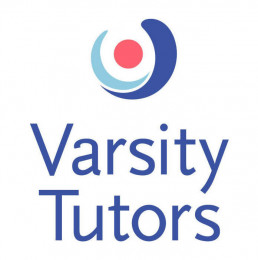
Varsity Tutors Review
Comprehensive review of Varsity Tutors: pricing, instructor qualifications, online platform, customer service, and educational quality.

15 Best PSAT Tutoring Services for 2024 (75 Tutoring Services Reviewed)
April 10, 2024
A list of the 13 best online SSAT tutoring services, reviewed and ranked. Compare prices & quality. Best overall: PrepMaven. Best self-guided: Test Innovators. Best on a budget...

16 Best Online Tutoring Services — Reviewed & Ranked by an Ivy-League Expert
April 9, 2024
A list of the 16 best online tutoring services, reviewed and ranked by an Ivy-League expert. Compare prices & tutor qualifications. Best overall: PrepMaven’s writing tutoring ($66–349/hr). Best on a budget: Wyzant ($20–600/hr). Best…

17 Best Online Math Tutoring Services — Reviewed & Ranked by an Ivy-League Educator
A list of the 17 best online math tutoring services, reviewed and ranked by an Ivy-League educator. Compare prices & tutor qualifications. Best overall: PrepMaven’s writing tutoring ($66–349/hr). Best on a budget: Wyzant ($20–600/hr). Best…

Should You Transfer Colleges?
April 4, 2024
If you’re thinking about transferring colleges, there’s a lot you should think about. Not all reasons for transferring are great ones: read on to learn about good reasons to transfer, bad reasons to transfer, and…

How to Request your High School Transcript
You may need to get a copy of your high school transcript for college applications, scholarship competitions, or just for your own records. Learn the most efficient way to receive your high school transcript and …

13 Best SSAT Tutoring Services for 2024 (36 Services Reviewed)
March 29, 2024

15 Best Online SAT Tutoring Services for 2024 (75 Tutoring Services Reviewed)
A list of the 15 best online SAT tutoring services, reviewed and ranked. Compare prices & instructor qualifications. Best overall: PrepMaven’s SAT tutoring ($79–349/hr). Best on a budget: Wyzant ($20–600/hr). Best…
Regions & Countries
- Publications
- Our Methods
- Short Reads
- Tools & Resources
Read Our Research On:
Anti-corporate sentiment in U.S. is now widespread in both parties
The U.S. public’s views of banks and other financial institutions, as well as large corporations, have become much more negative in recent years. Today, these institutions are both held in low esteem by Americans in both parties.
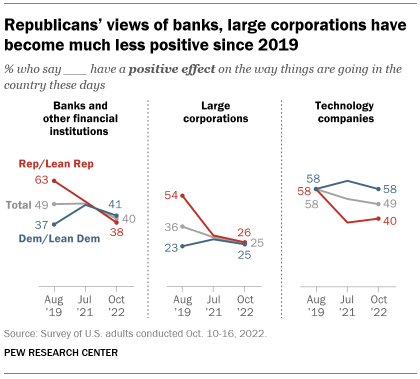
About four-in-ten Republicans and Republican-leaning independents (38%) and Democrats and Democratic leaners (41%) now say banks and other financial institutions have a positive effect on the way things are going in the country. Even smaller shares – 26% of Republicans and 25% of Democrats – say large corporations have a positive effect, according to a survey conducted Oct. 10-16 by Pew Research Center.
Pew Research Center conducted this study to understand the U.S. public’s impressions of several institutions in the country. For this analysis, we surveyed 5,098 adults from Oct. 10 to 16, 2022. Everyone who took part in this survey is a member of the Center’s American Trends Panel (ATP), an online survey panel that is recruited through national, random sampling of residential addresses. This way nearly all U.S. adults have a chance of selection. The survey is weighted to be representative of the U.S. adult population by gender, race, ethnicity, partisan affiliation, education and other categories. Read more about the ATP’s methodology .
Here are the questions used for this report, along with responses, and its methodology .
While Democrats’ views of banks and big corporations have only modestly changed since 2019 (41% vs. 37%), Republicans’ assessments have become much more negative. Three years ago, Republicans were far more likely than Democrats to say banks and other financial institutions (63% vs. 37%) and large corporations (54% vs. 23%) had a positive effect on the way things were going in the country.
Republicans have also become much more negative in their opinions of technology companies. In 2019, identical shares of Democrats and Republicans (58% each) said technology companies had a positive effect on the country. While Democrats’ views are unchanged, the share of Republicans with a positive view had fallen 20 percentage points by 2021 and has changed little since then (currently 40%).
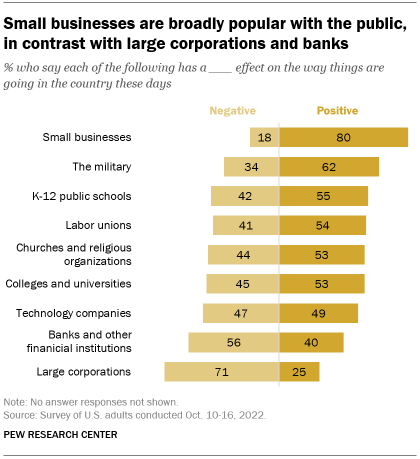
Overall, Americans view small businesses much more positively than the eight other institutions included in the survey. Eight-in-ten adults say small businesses have a positive effect on the way things are going in the country, and just 18% say they have a negative effect.
Majorities of Americans also say the military (62%), K-12 public schools (55%), labor unions (54%), churches (53%), and colleges and universities (53%) have a positive effect on the way things are going in the country.
The public is divided in its evaluations of technology companies (49% positive, 47% negative).
Majorities of Americans express negative views of banks and other financial institutions, as well as large corporations. While 56% say banks and other financial institutions have a negative effect on the way things are going in the country, even more (71%) say the same about large corporations.
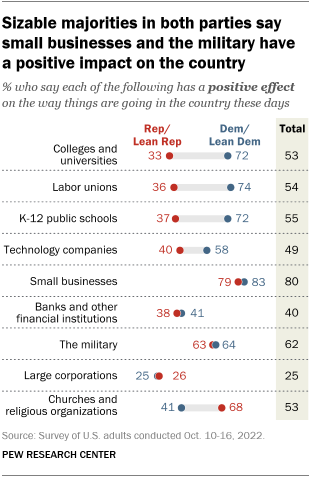
Comparably large majorities of both Democrats and Republicans say small businesses have a positive impact on the country these days (83% vs. 79%). And majorities in both parties view the military positively (64% of Democrats, 63% of Republicans).
However, the two parties differ widely over the effect that colleges and universities, labor unions, K-12 public schools, churches and technology companies have on the way things are going in the country.
Democrats are roughly twice as likely as Republicans to say colleges, unions and public schools have a positive impact. Conversely, Republicans are more likely than Democrats (68% vs. 41%) to say churches and religious organizations have a positive effect on the country.
Ideological differences in views of several major institutions
Americans across the ideological spectrum overwhelmingly say that small businesses have a positive effect on the country – and for the most part think that large corporations have a negative effect.
In the case of banks and financial institutions, 65% of liberal Democrats and 60% of conservative Republicans say they have a negative impact. By comparison, 49% of conservative and moderate Democrats and 56% of moderate and liberal Republicans say the same.
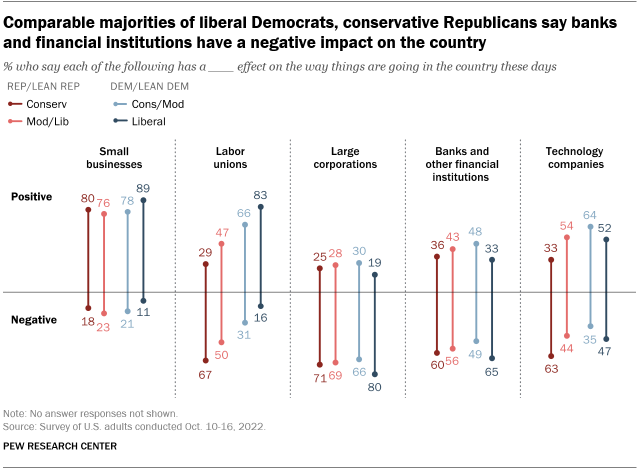
However, there are wide partisan and ideological differences in opinions of how labor unions and technology companies affect the country. An overwhelming majority of liberal Democrats (83%) express positive views of labor unions, as do about two-thirds of conservative and moderate Democrats (66%). Among Republicans, 47% of moderates and liberals and 29% of conservatives view unions positively. Conservative Republicans also are far more critical than other ideological groups, including moderate and liberal Republicans, of the impact of technology companies.
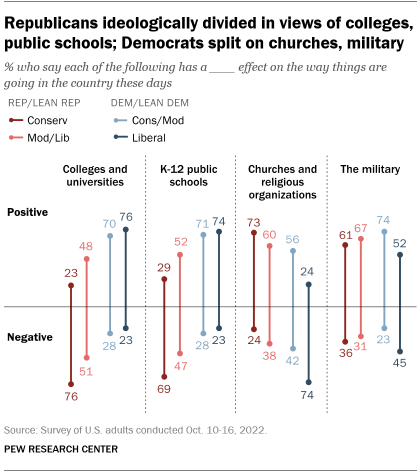
For several years, Republicans – especially conservative Republicans – have expressed more negative than positive views of colleges and universities . This remains the case today, with about three-quarters (76%) of conservative Republicans saying colleges affect the country negatively.
Moderates and liberals in the GOP are split in their views on colleges and universities (48% positive, 51% negative), and large majorities of both liberal and moderate or conservative Democrats say these institutions have a positive impact on the country.
Opinions of K-12 public schools follow a similar pattern: 29% of conservative Republicans say they have a positive impact, by far the lowest share among ideological groups.
See also: Republicans’ confidence in K-12 principals has fallen sharply during the pandemic
Among Democrats, there are wide ideological differences on views of both religious organizations and the military. While a majority of conservative and moderate Democrats (56%) say churches and religious organizations have a positive effect on the country, about three-quarters of liberal Democrats (74%) say religious institutions have a negative effect on the country. Among Republicans, majorities of both conservatives (73%) and moderates and liberals (60%) say churches and religious organizations have a positive effect on the way things are going in the country.
Roughly three-quarters of conservative and moderate Democrats (74%) say the military is having a positive effect on the way things are going in this country, a greater share than among other ideological groups. Two-thirds of moderate and liberal Republicans view the military positively, as do 61% of conservative Republicans. Liberal Democrats are less likely than other groups to view the military positively, with about half (52%) saying it has a positive effect on the country and 45% viewing it negatively.
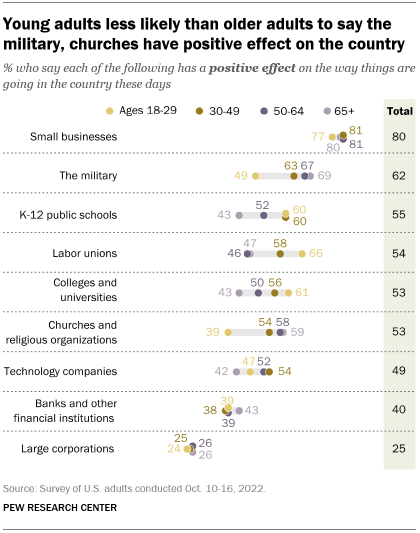
Opinions on these institutions – especially the military and churches – also vary across age groups.
Adults ages 18 to 29 stand out for their skepticism toward the military, with 49% saying it has a positive effect on the way things are going in the country, the lowest share in any age group. Adults under age 30 are also less likely than those 30 and older to say churches and religious organizations have a positive impact.
Adults under the age of 50 are more likely than those ages 50 t0 64 (52%) and those 65 and older (43%) to say K-12 public schools have a positive effect on the country. There is a similar pattern on views of colleges and universities.
Note: Here are the questions used for this report, along with responses, and its methodology .
- Business & Workplace
- Partisanship & Issues
- Political Issues
- Politics & Policy
- Tech Companies

Amina Dunn is a former research analyst focusing on U.S. politics and policy at Pew Research Center

Andy Cerda is a research assistant focusing on politics at Pew Research Center
A look at small businesses in the U.S.
Majorities of adults see decline of union membership as bad for the u.s. and working people, a look at black-owned businesses in the u.s., from businesses and banks to colleges and churches: americans’ views of u.s. institutions, 2023 saw some of the biggest, hardest-fought labor disputes in recent decades, most popular.
1615 L St. NW, Suite 800 Washington, DC 20036 USA (+1) 202-419-4300 | Main (+1) 202-857-8562 | Fax (+1) 202-419-4372 | Media Inquiries
Research Topics
- Age & Generations
- Coronavirus (COVID-19)
- Economy & Work
- Family & Relationships
- Gender & LGBTQ
- Immigration & Migration
- International Affairs
- Internet & Technology
- Methodological Research
- News Habits & Media
- Non-U.S. Governments
- Other Topics
- Race & Ethnicity
- Email Newsletters
ABOUT PEW RESEARCH CENTER Pew Research Center is a nonpartisan fact tank that informs the public about the issues, attitudes and trends shaping the world. It conducts public opinion polling, demographic research, media content analysis and other empirical social science research. Pew Research Center does not take policy positions. It is a subsidiary of The Pew Charitable Trusts .
Copyright 2024 Pew Research Center
Terms & Conditions
Privacy Policy
Cookie Settings
Reprints, Permissions & Use Policy

IMAGES
VIDEO
COMMENTS
This will create fun research topics for 6th graders, learning about life and how relationships work. Literature: This is the best time to learn about books and works of art. The literature will provide many topics to research for middle school students. There are many more aspects that middle school students can research and write papers on.
Begin with a simple prototype, focusing on one core feature, and expand from there. 5. Model rocketry: design, build, and launch! What to do: Dive into the basics of rocket science by designing your own model rocket. Understand the principles of thrust, aerodynamics, and stability as you plan your rocket.
Here find the 10 most innovative middle school research paper ideas. The methods deal with addressing drug addiction cases in high school. Physical vs. digital communications. Body Image and the Korean Pop Culture. The significance of school volunteering and social work.
30 Tips For Finding Great Research Paper Topics for Middle School. If you get stuck on the stage of choosing the topic of your research paper, we can completely understand you. It is the case when too vivid or too tired imagination can both work against you. The good news are that in the middle school the teachers are usually less strict when ...
A good topic for middle school research could delve into the Role of Robotics in the Future of Society. Students can explore how robotics may transform jobs, healthcare, and everyday life. They can examine the balance between automation and human work, predict how robots could augment human abilities, and discuss the ethical dimensions of a ...
If you are interested in your topic, learning about it will be more pleasurable and you will write with greater passion, so choose your topic thoughtfully. Use the following list of 101 research paper topics as a starting point for your paper. As you begin learning and writing about your topic, you should revise or amend your research question ...
I. Introduction to Exploring Research Paper Topics for Middle Schoolers. II. Benefits of Assigning a Research Project in the Middle School Classroom. III. Identifying Appropriate and Engaging Topics for Younger Students. IV. Strategies for Facilitating Student Learning on Complex Ideas. V. Examining Relevant Sources to Support Claims and Arguments.
Examples of social science research topics for middle school students: The impact of social media on mental health. Gender inequality in education and the workplace. The effects of poverty on child development. The relationship between stress and physical health. The role of parenting styles in child behavior.
To help support young people in their personal and academic research endeavors, Library educators and librarians teamed up to develop an online research guide for middle and high school students. A variety of Research Guides have been designed by Library of Congress specialists to help researchers navigate the Library's analog and digital ...
Focus- Research paper topics for middle schoolers should narrow down to one main point or question. Too broad of a focus will make it difficult to develop comprehensive content on the subject matter. >Length Requirements - When choosing a topic, remember that length requirements must be met which may limit some options. ...
18. Middle School Research Projects Middle School Students Will Love. Here is a list of 30 great research projects for middle schoolers, along with cool examples of each one. It also goes through planning strategies and other so-called soft skills that your middle school-aged students will need in order to complete such projects.
Step 1: Selecting A Topic. When deciding on research paper topics for middle school students, pick something with multiple points of view so that there is room for debate. Consider current issues such as gun control or standardized testing in education; any controversial topic can make great fodder for an argumentative essay.
113 Great Research Paper Topics. Posted by Christine Sarikas. General Education. One of the hardest parts of writing a research paper can be just finding a good topic to write about. Fortunately we've done the hard work for you and have compiled a list of 113 interesting research paper topics. They've been organized into ten categories and ...
The following research topics for middle schoolers are sure to engage! 1. Taxonomic Classification. In the early grades, scientific classifications for living things are simple: plants and animals. ... By 6th grade, students should have a good grasp on classifications like mammals, reptiles, and insects. So the next step is taxonomic ...
I often advise students to begin with the body portion of the essay, leaving the introduction and conclusion for last. This may seem awkward, but the research students have been working on naturally fits into the body of the essay. After students have fit their research into the body paragraphs, they can go back and work on the introduction and ...
1. Lumiere Junior Explorer Program. The Lumiere Junior Explorer Program is an 8-week program for middle school students to work one-on-one with a mentor to explore their academic interests and build a project they are passionate about. Our mentors are scholars from top research universities such as Harvard, MIT, Stanford, Yale, Duke and LSE.
Here is an example of a research process that you may consider using when teaching research skills in your middle school classroom: Form a question: Research should be targeted; develop a question you want to answer before progressing any further. Decide on resources: Not every resource is good for every question/problem. Identify the resources ...
The appropriation of the "Boston Tea Party" by US politicians in the 2010s. This list could go on forever! In fact, any of these topics could become even more specific. For example, check out the evolution of this topic: Causes of the US Revolutionary War. Economic causes of the Revolutionary war.
important data. Middle schools should implement these practices widely and with idelity to reduce students' risk of high school dropout and prepare them for successful high school and postsecondary experiences. 1 Know What Works in Middle Schools Solid Research Base Successful middle schools rely on a rich, high-quality body of research to inform
To help support young people in their personal and academic research endeavors, Library educators and librarians teamed up to develop an online research guide for middle and high school students. A variety of "Research Guides" have been designed by Library of Congress specialists to help researchers navigate the Library's analog and ...
Our middle school projects are written and tested by scientists and are specifically created for use by students in the middle school grades. Students can choose to follow the science experiment as written or put their own spin on the project. For a personalized list of science projects, middle schoolers can use the Science Buddies Topic ...
125 Winning Debate Topics for Middle School Students. Teach students to make effective arguments. By Jill Staake, B.S., Secondary ELA Education. Sep 6, 2023. When students learn to debate, they gain valuable life skills. Debates teach kids to research their topic, make informed choices, and argue effectively using facts instead of emotion.
Middle School Research Process. Big6: (1) Task Definition Topic: A good topic should have enough available information at the student's grade, ability, and interest level. Locate a topic in teacher's list, textbooks, and/or library sources. Help narrow or broaden a topic by reading about it in an encyclopedia.
While Democrats' views of banks and big corporations have only modestly changed since 2019 (41% vs. 37%), Republicans' assessments have become much more negative. Three years ago, Republicans were far more likely than Democrats to say banks and other financial institutions (63% vs. 37%) and large corporations (54% vs. 23%) had a positive ...
Incoming global policy faculty member Caroline Krafft, left, and Associate Professor Kathy Quick. The Humphrey School of Public Affairs is pleased to announce two faculty updates that will strengthen its expertise in leadership and management, and global policy. Kathy Quick: New chair and new Extension roleKathy Quick, associate professor in the School's leadership and management area, has ...